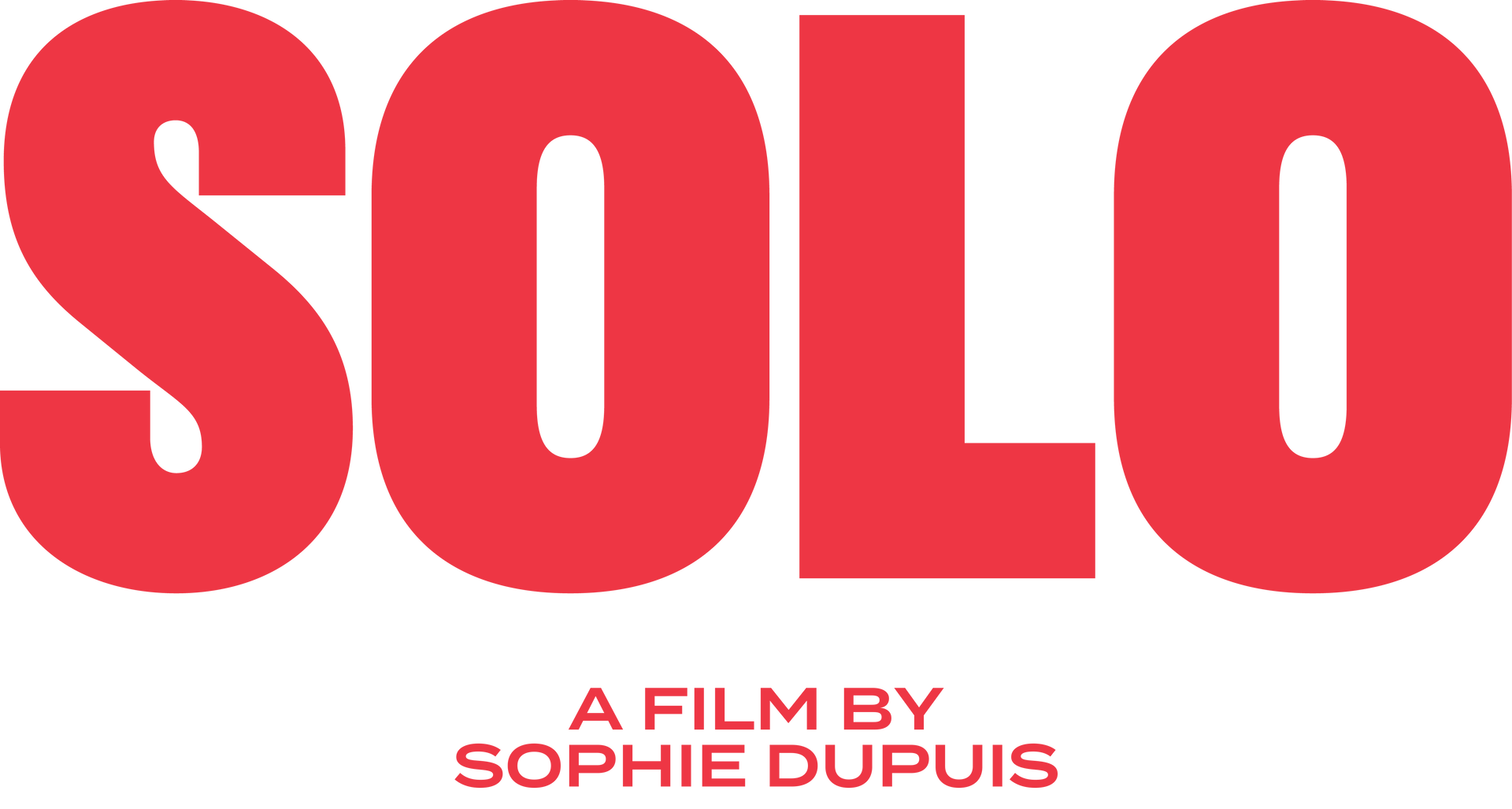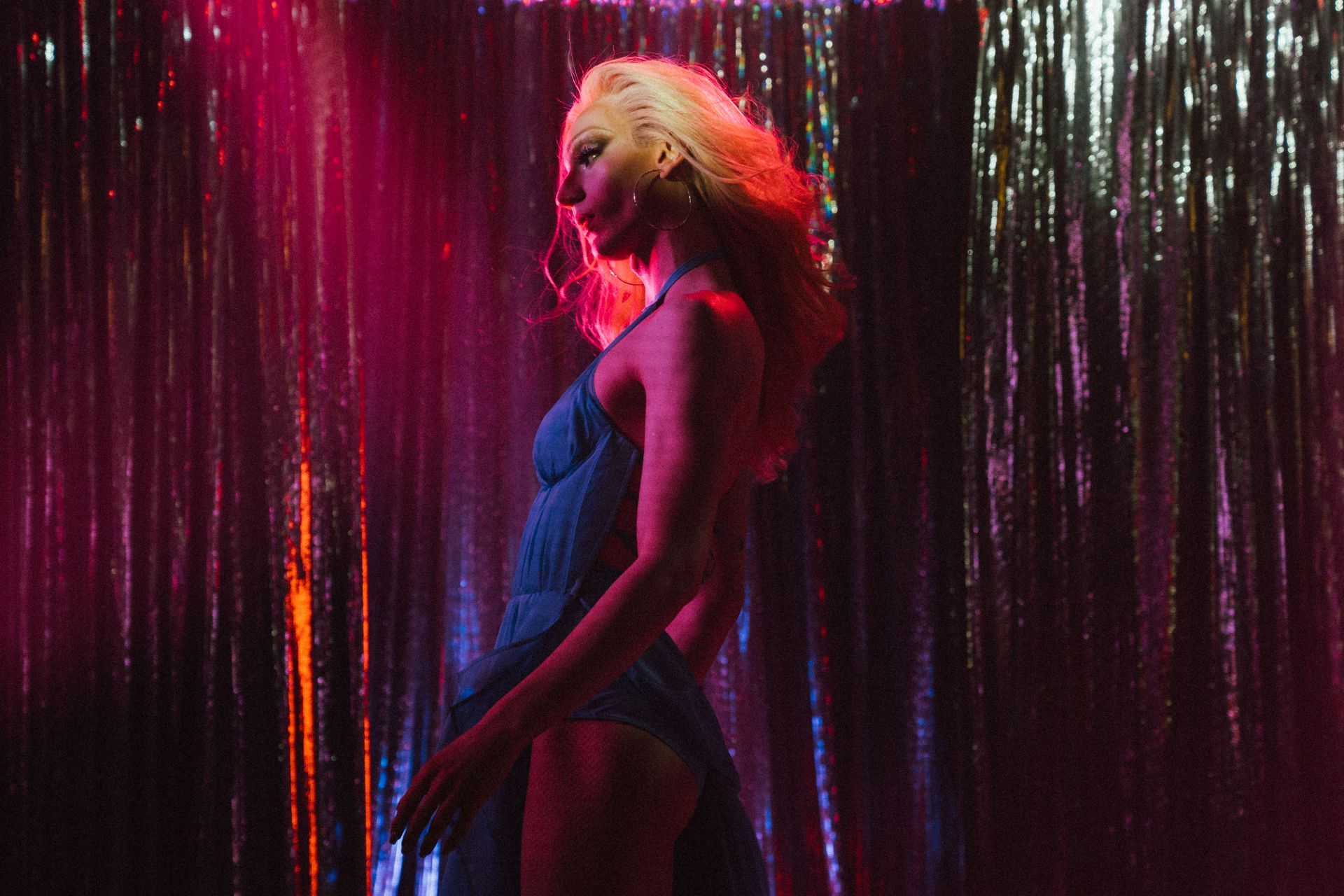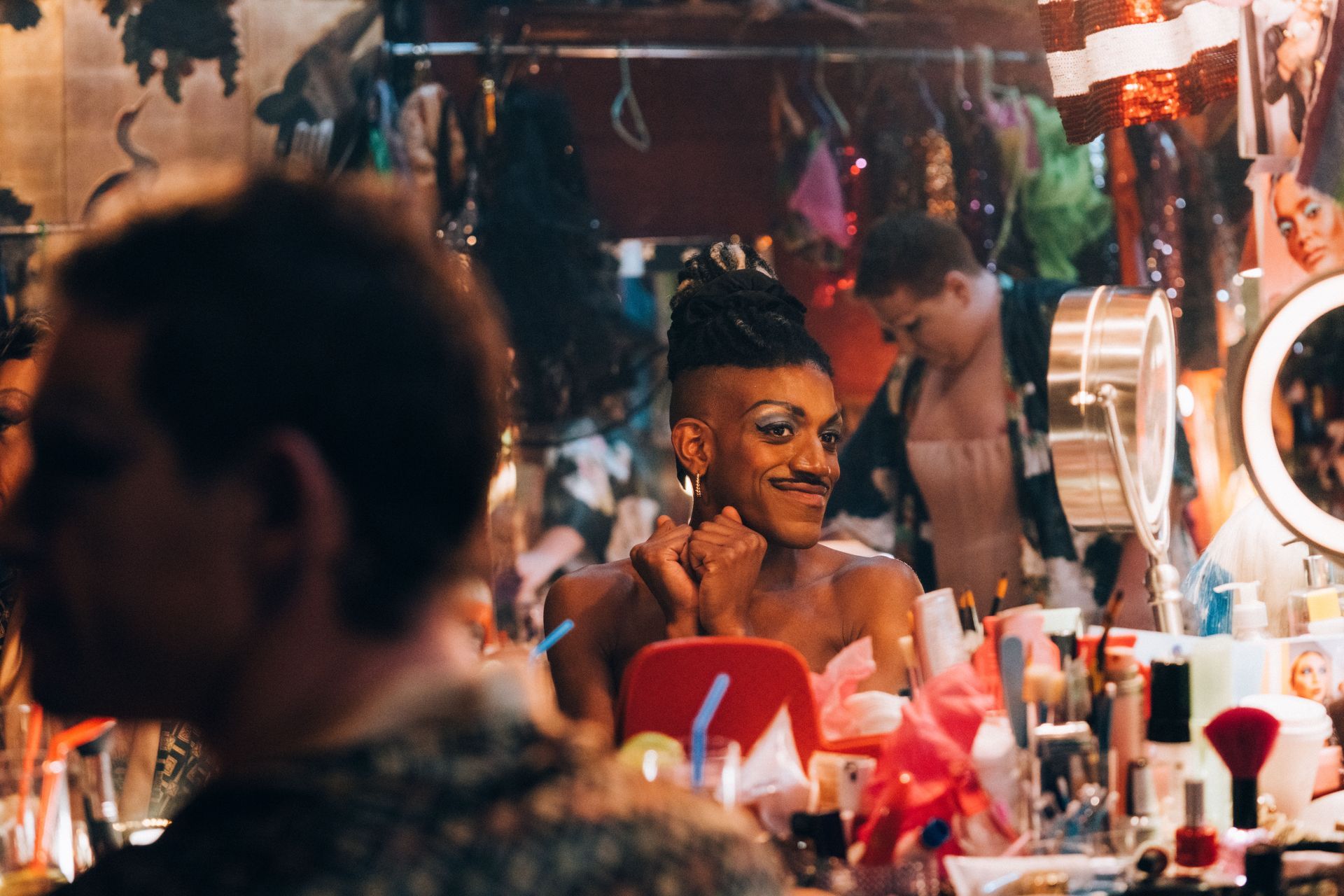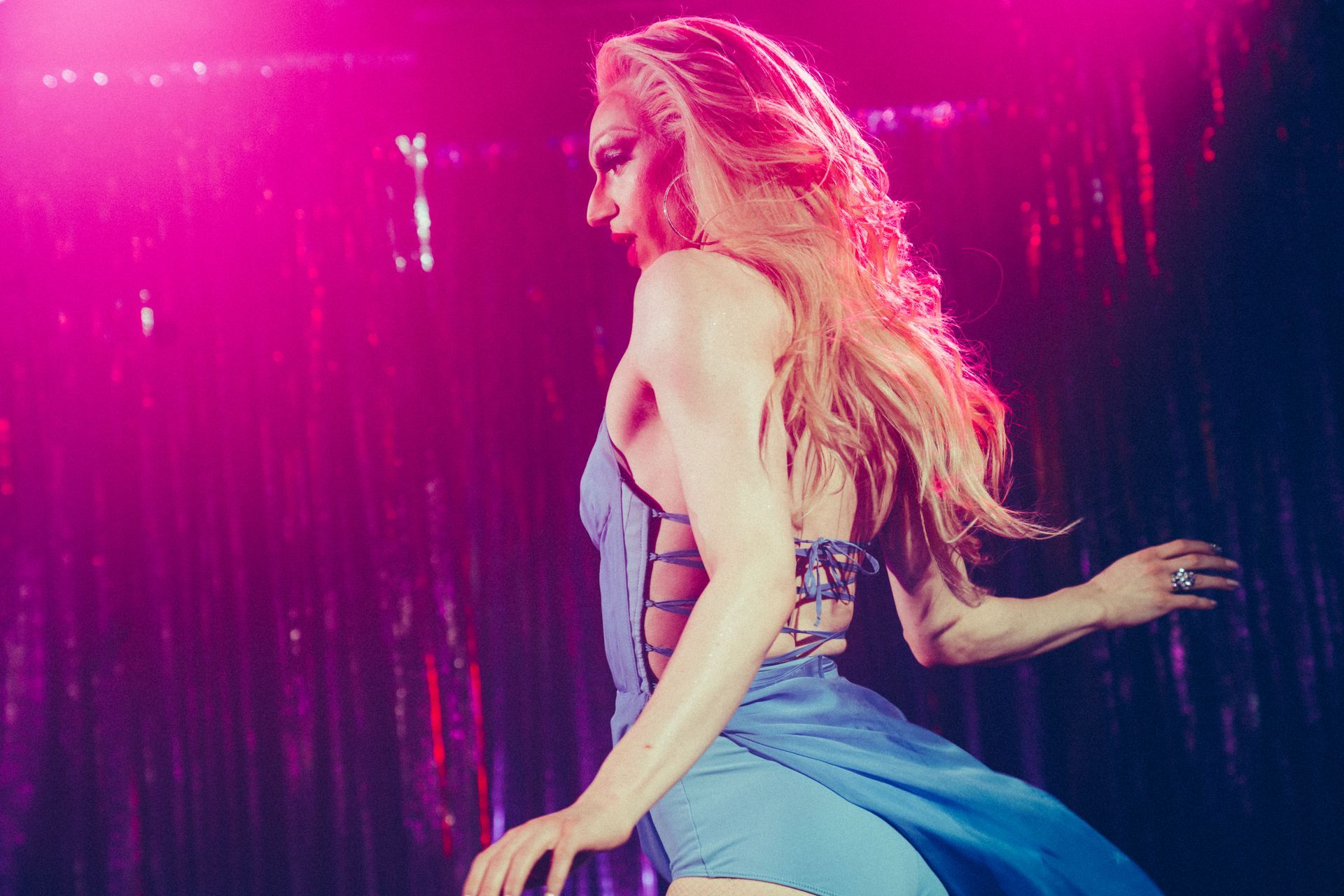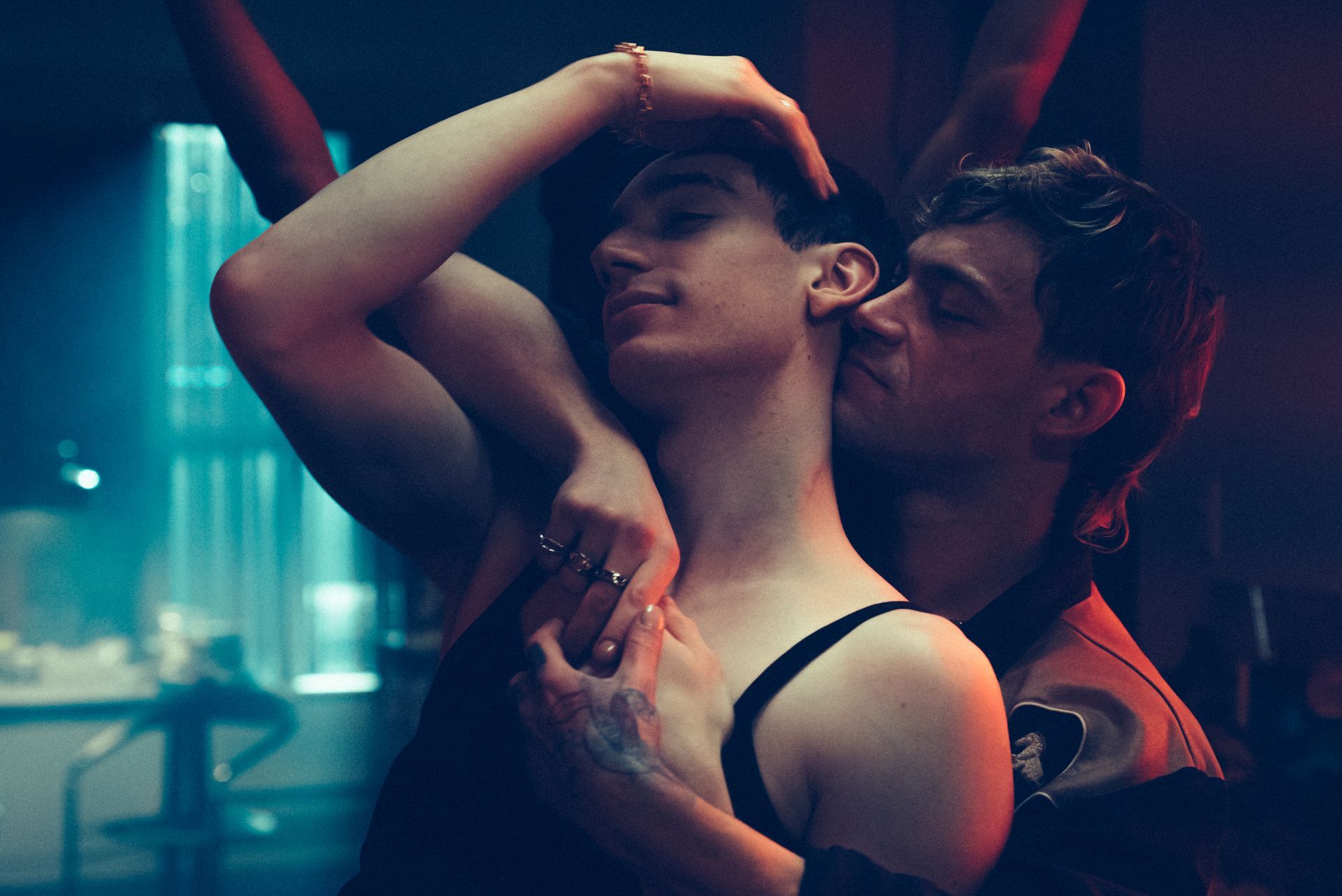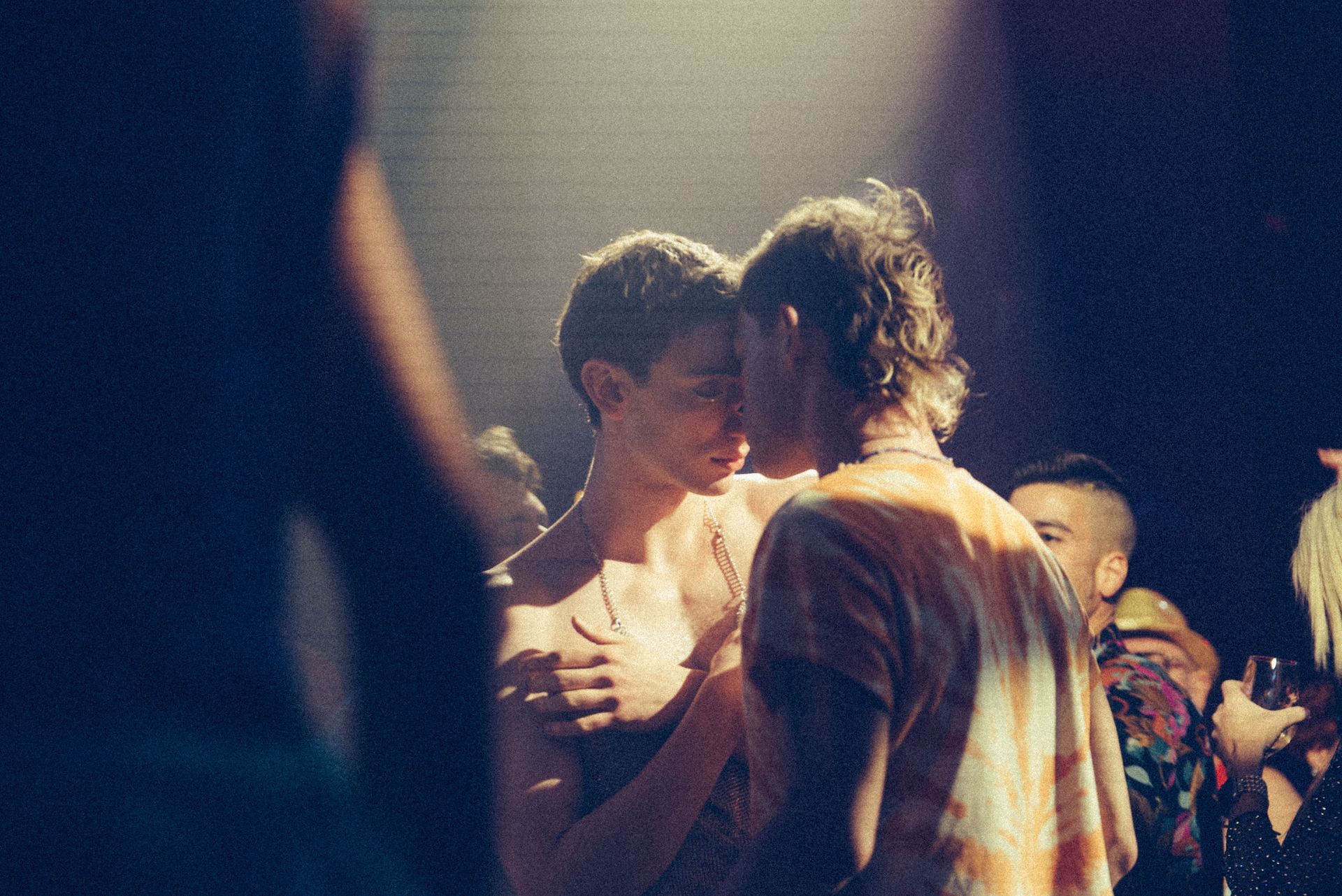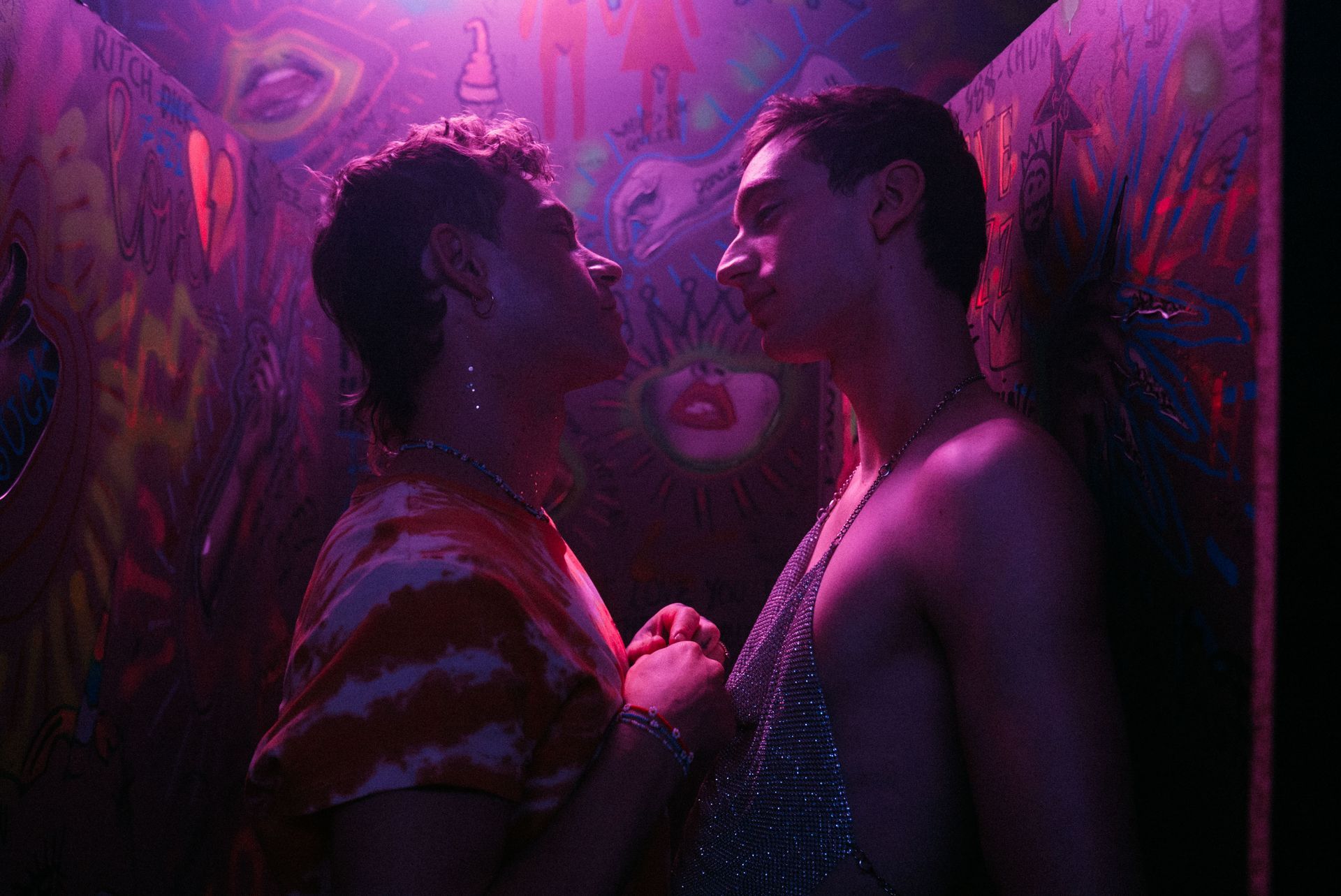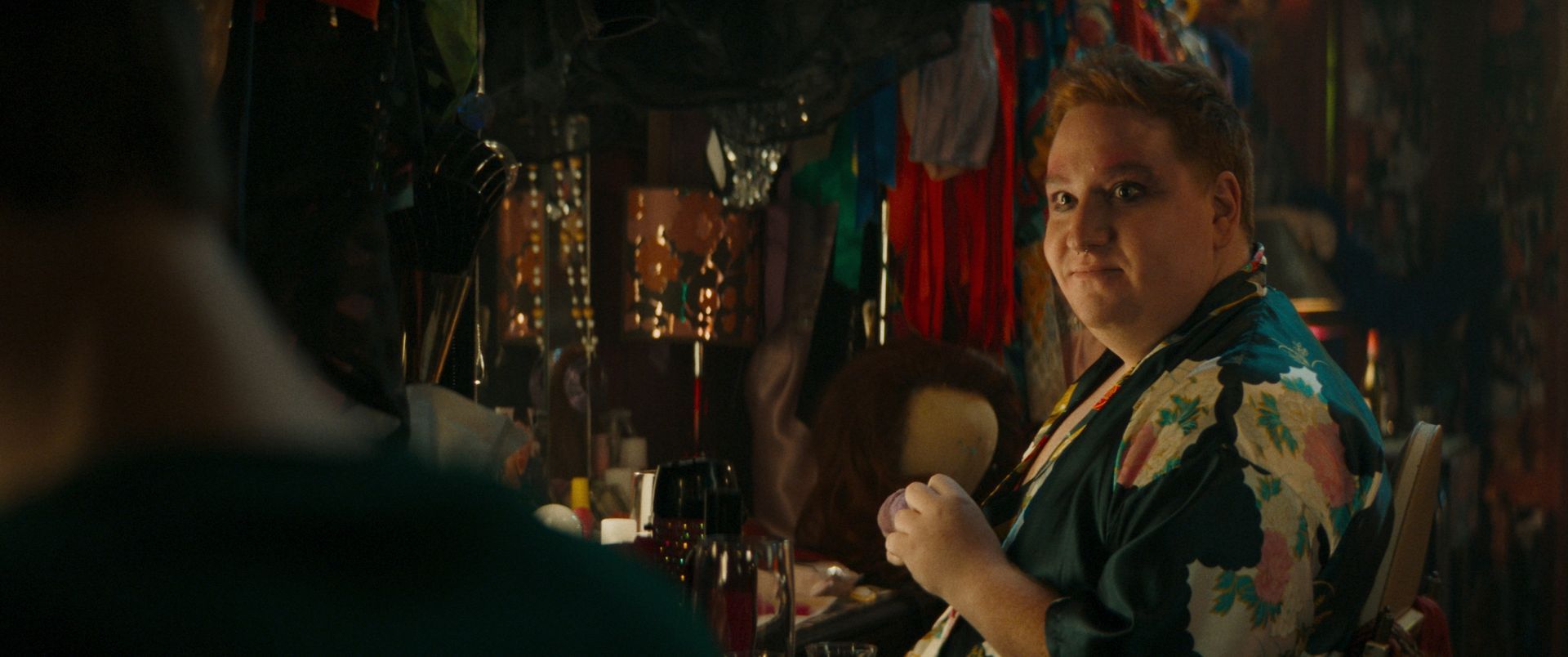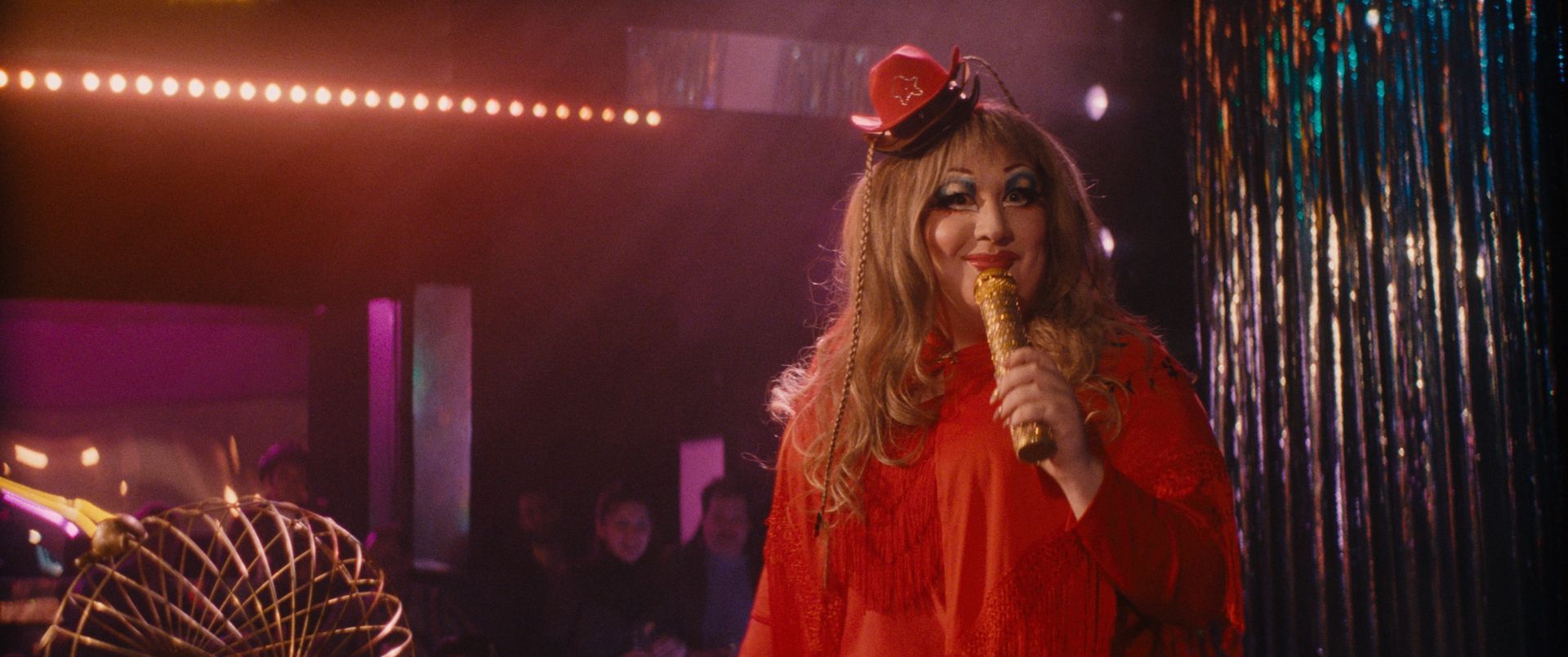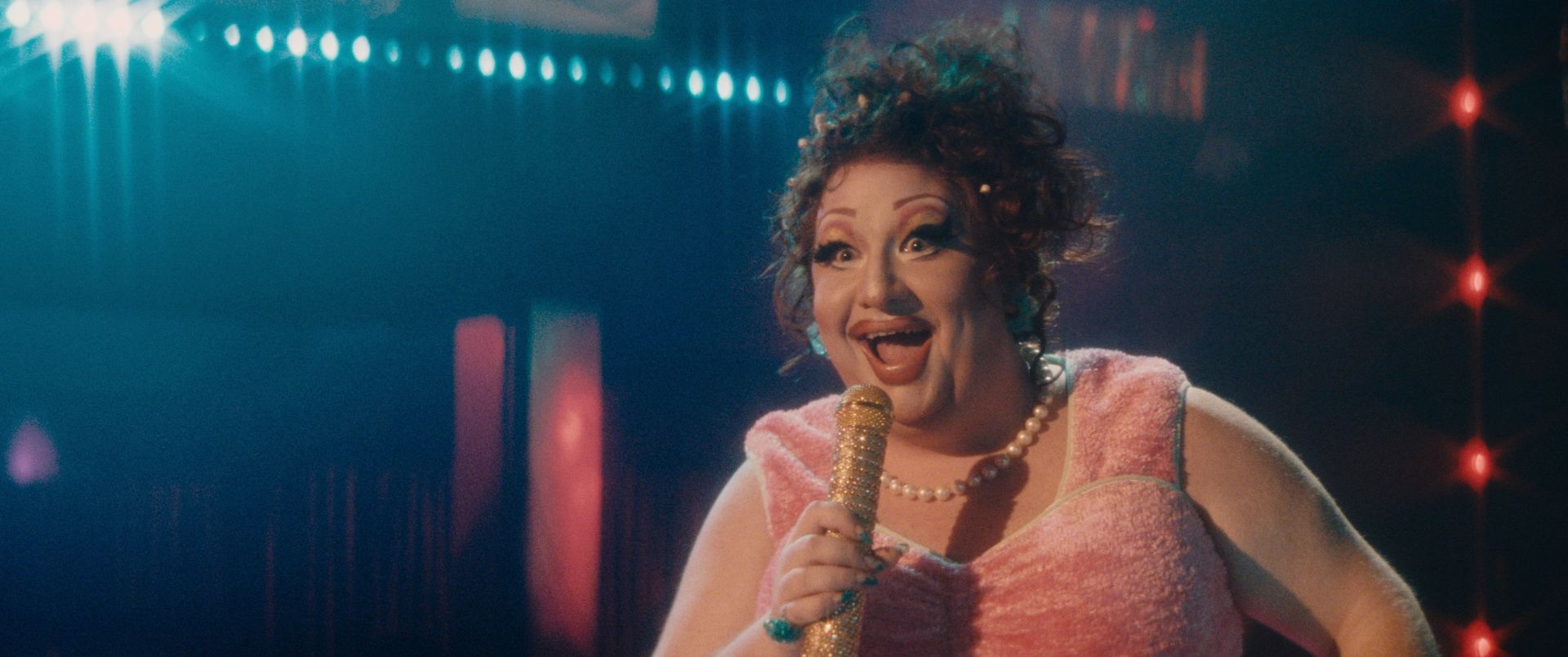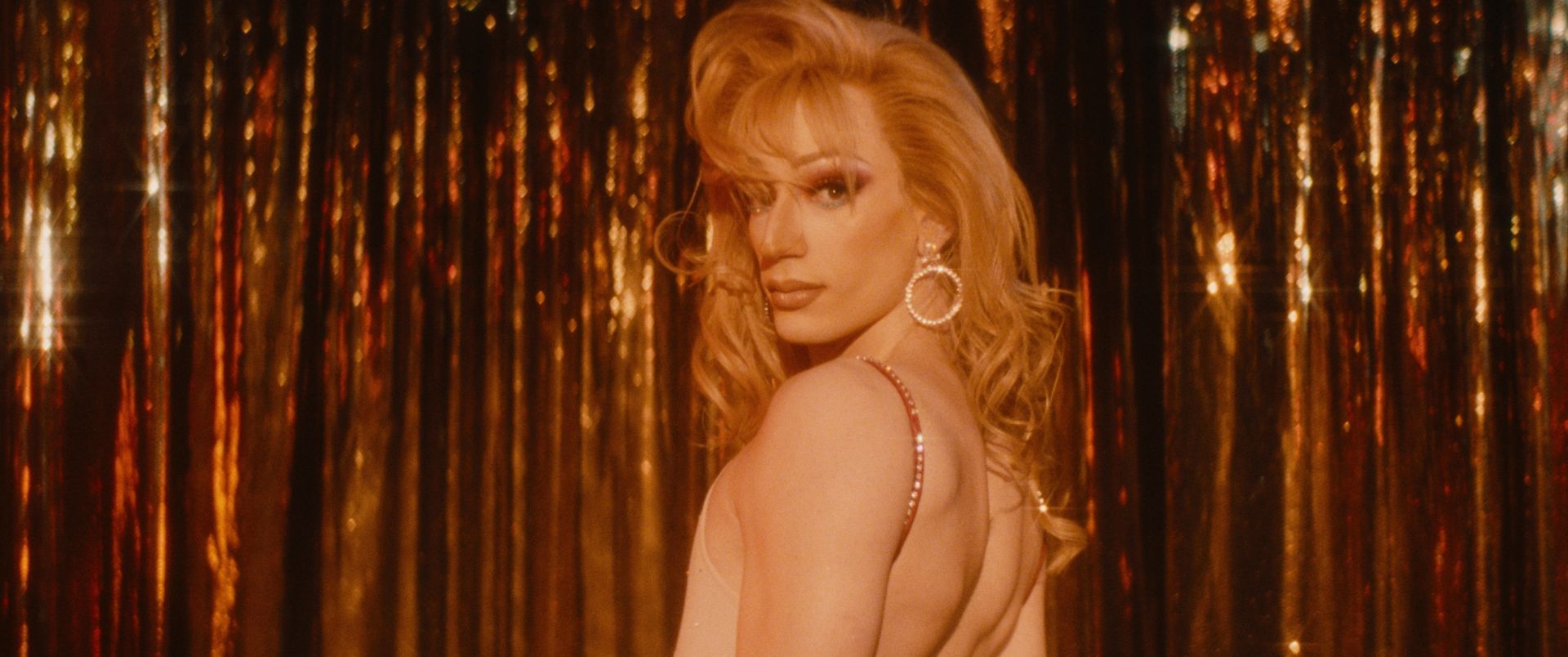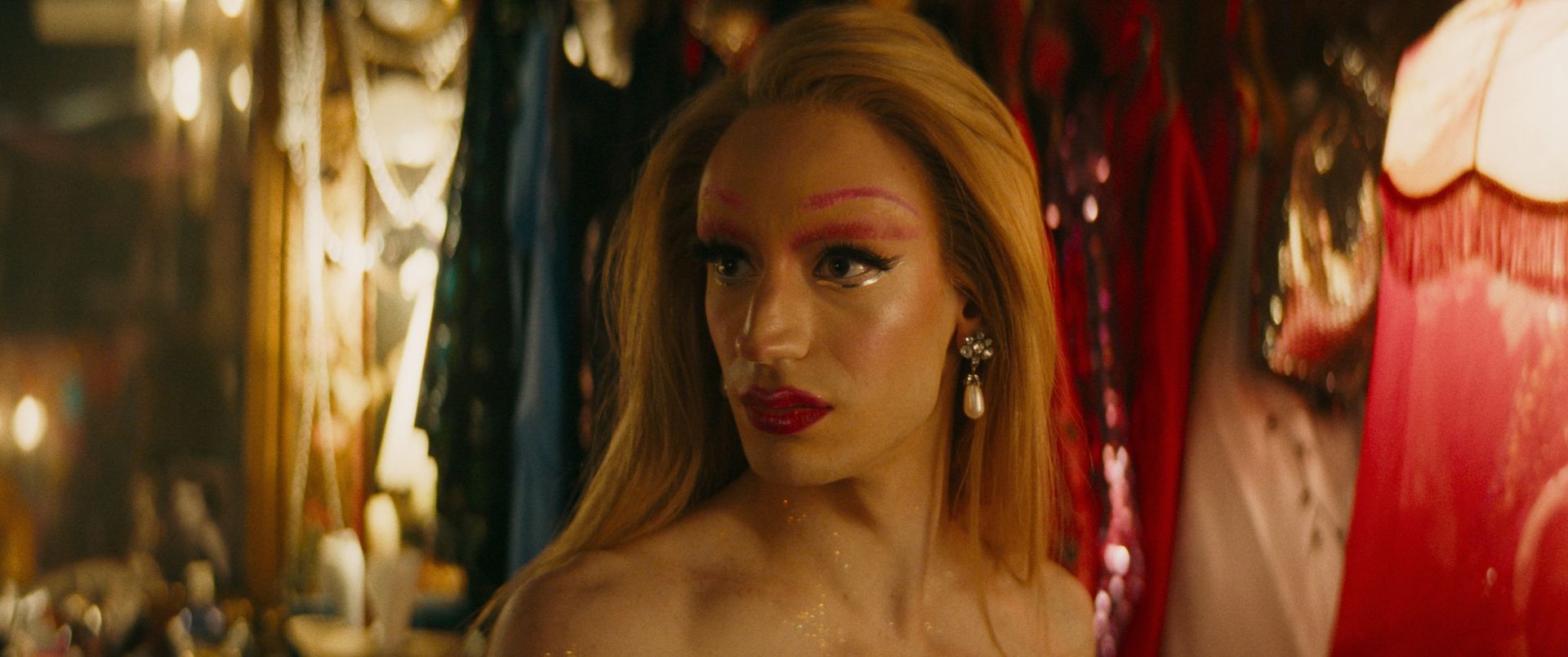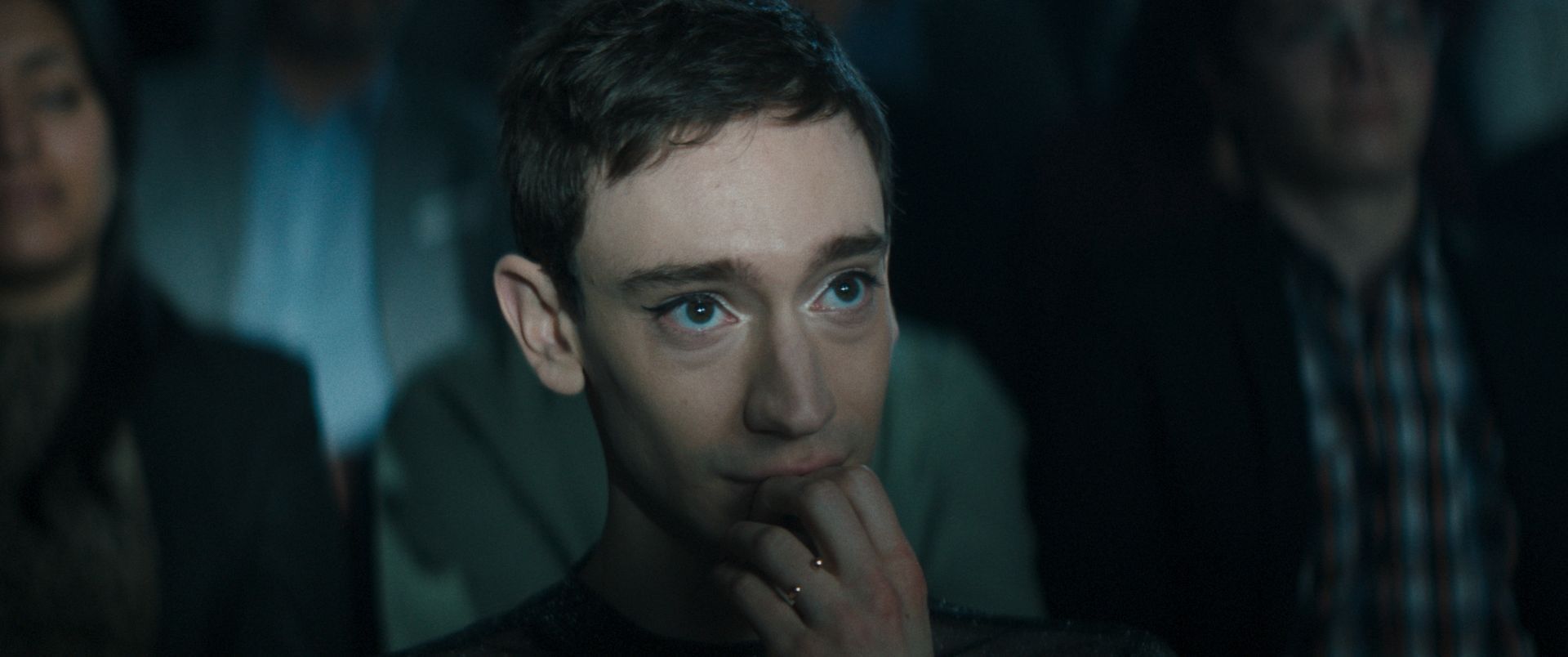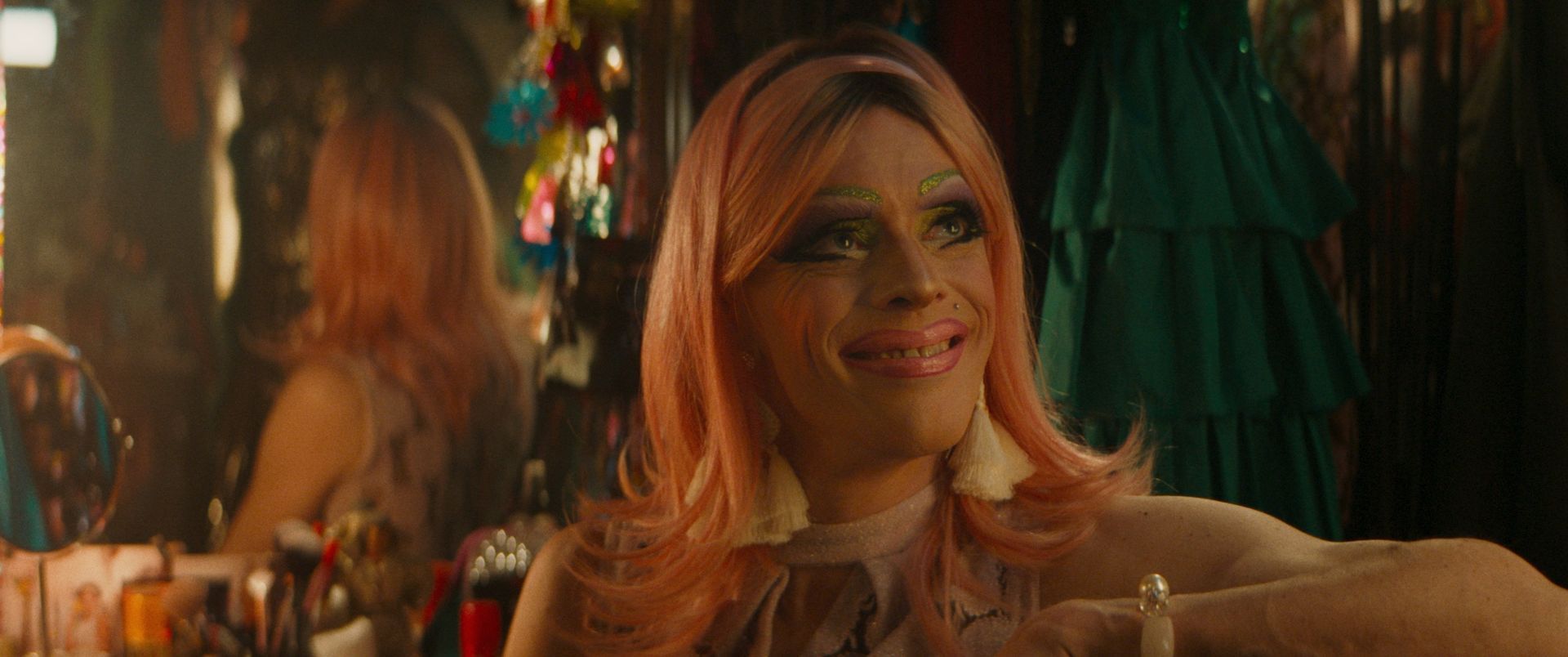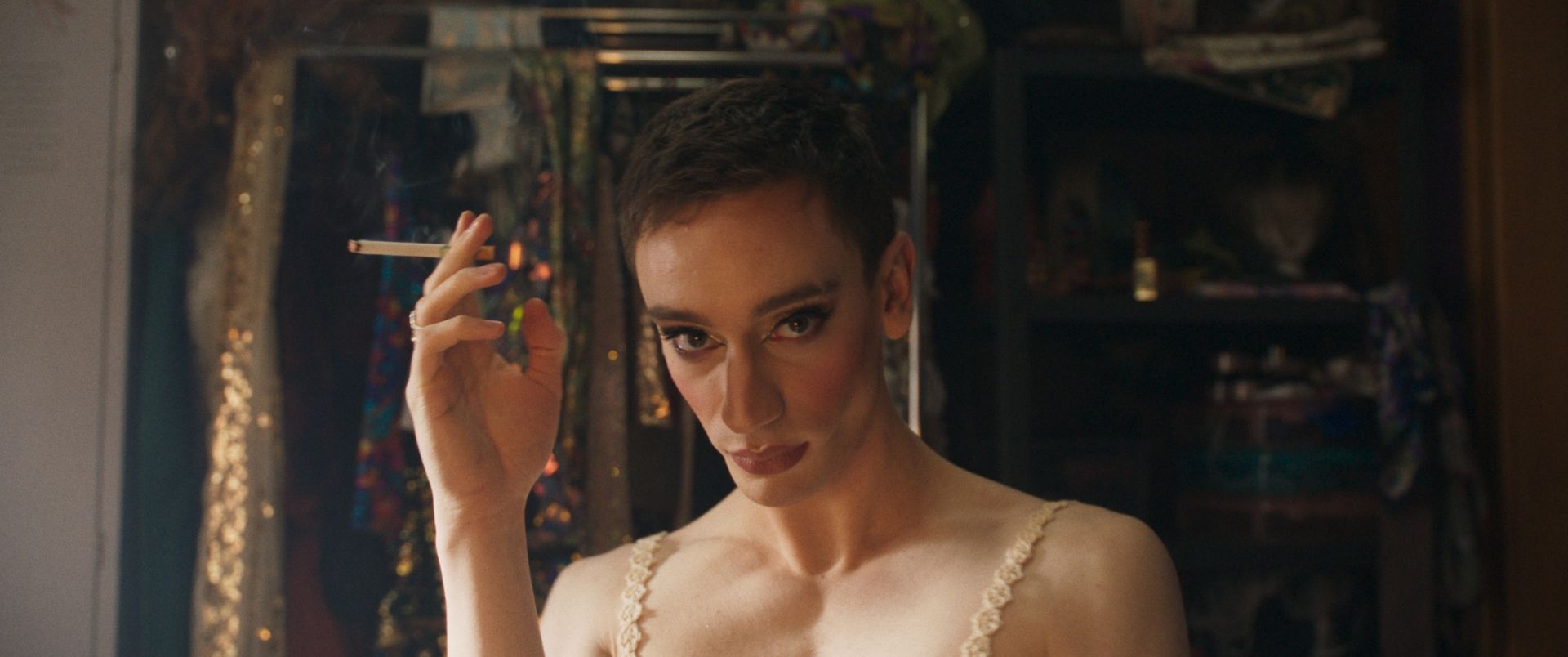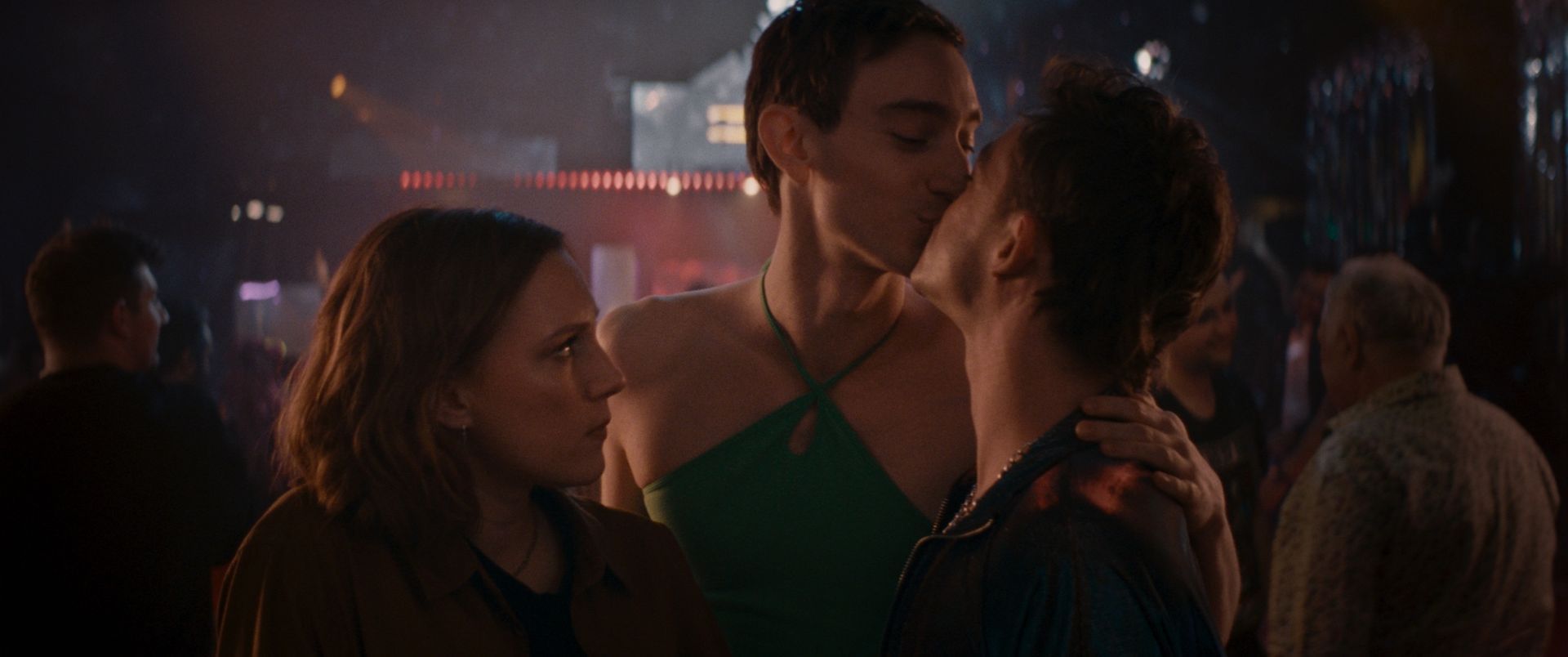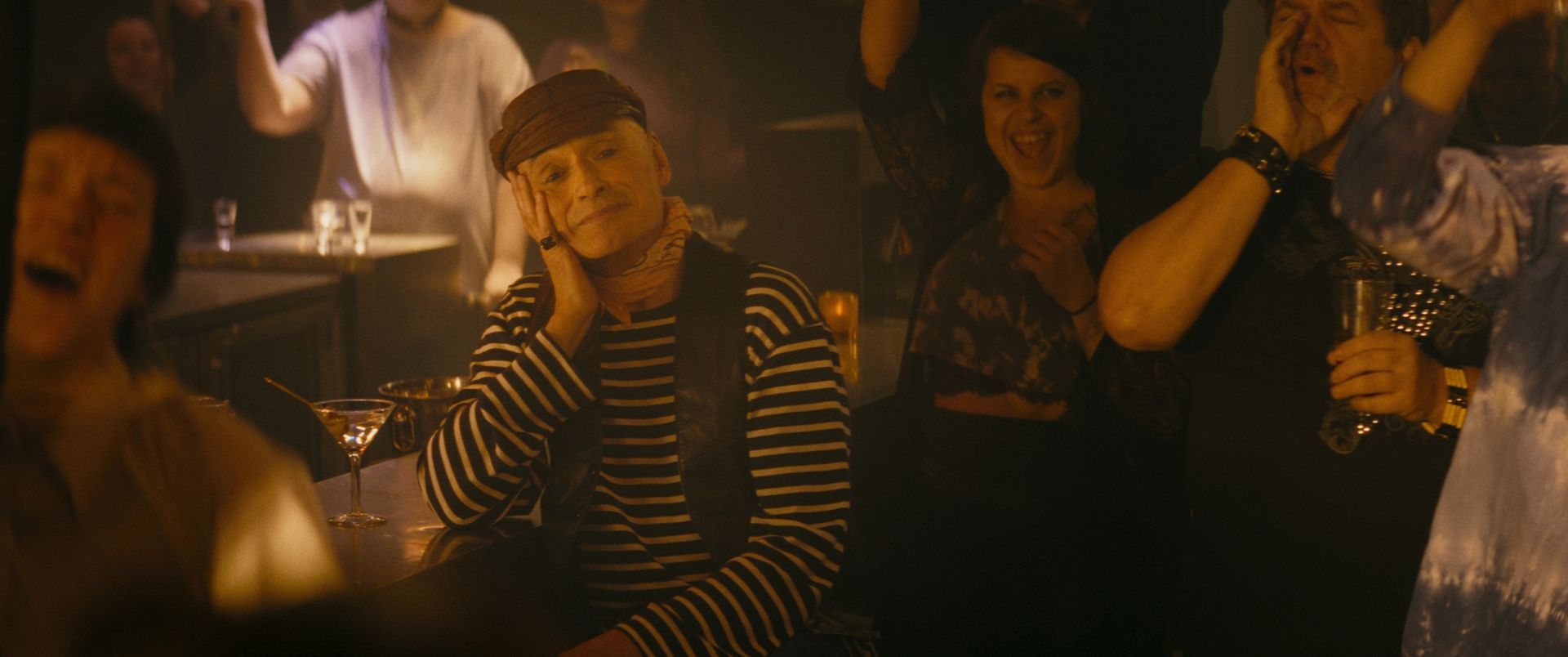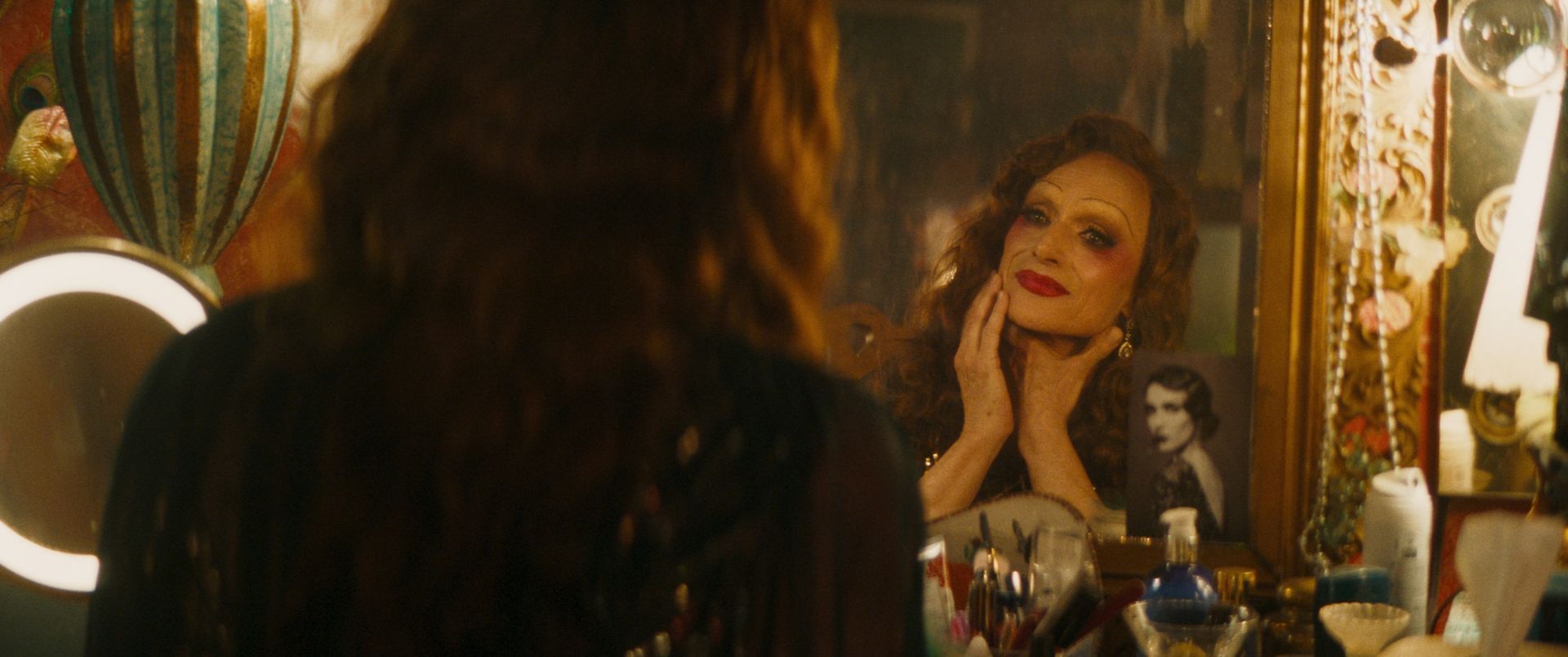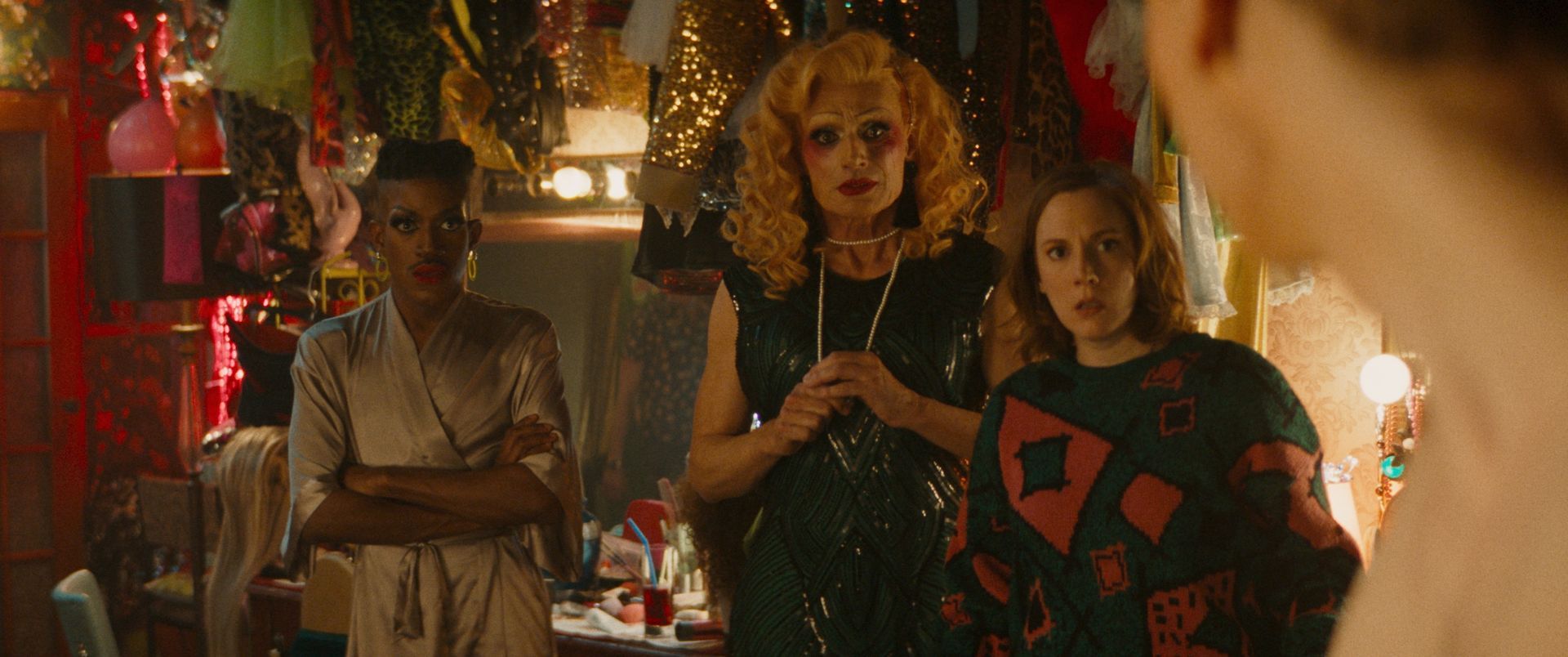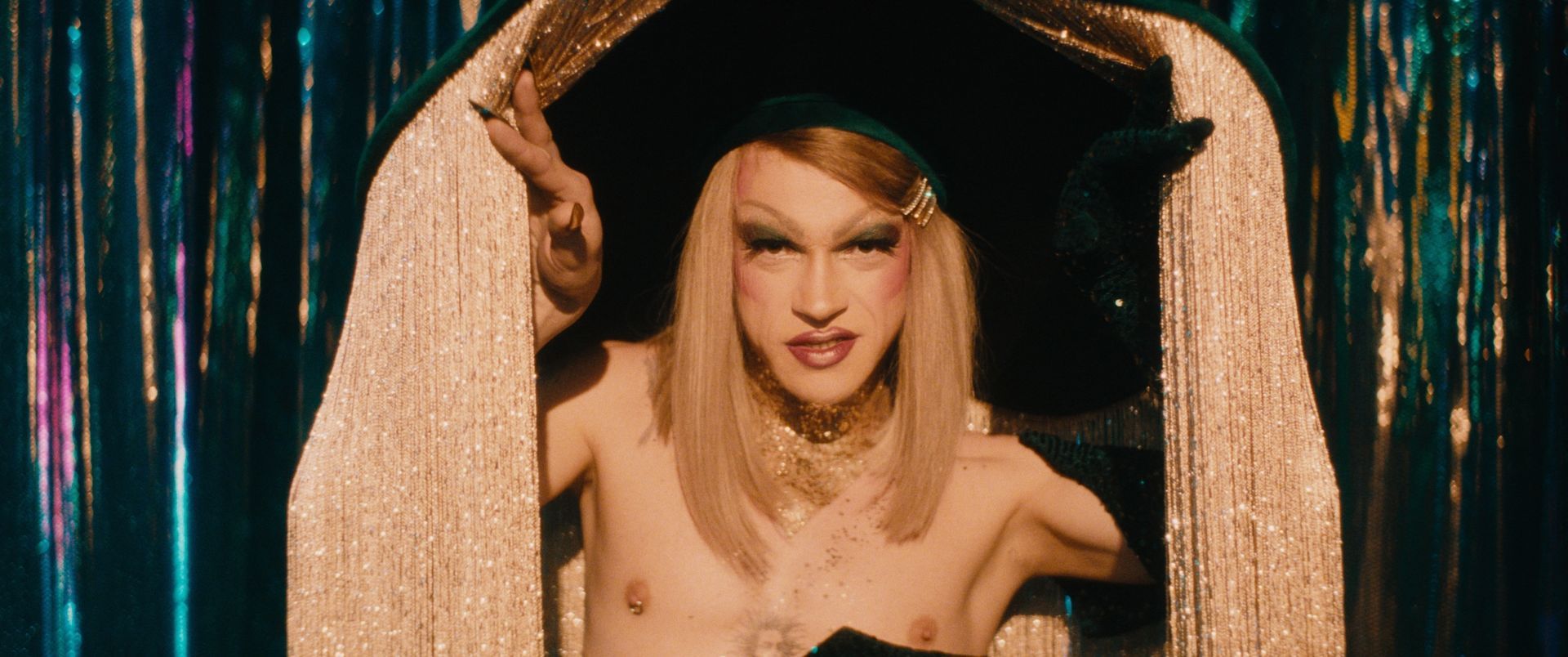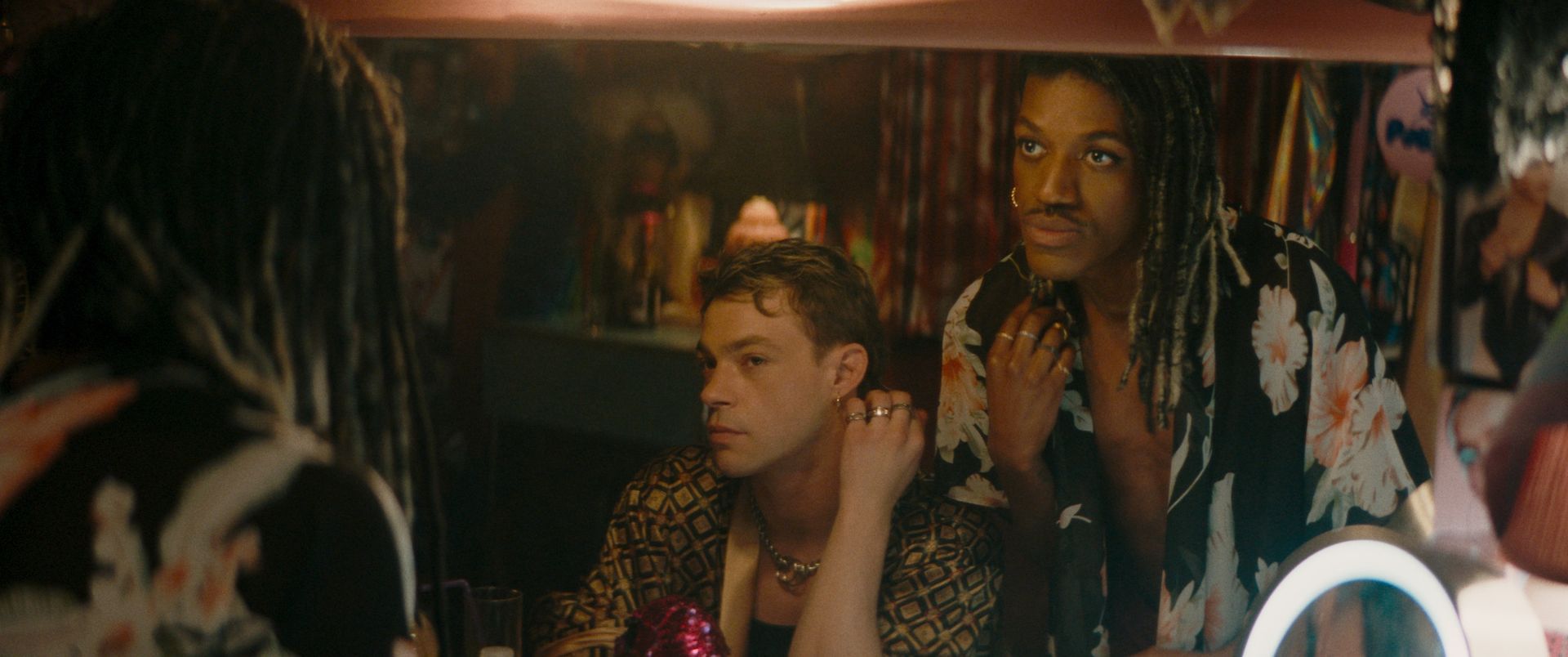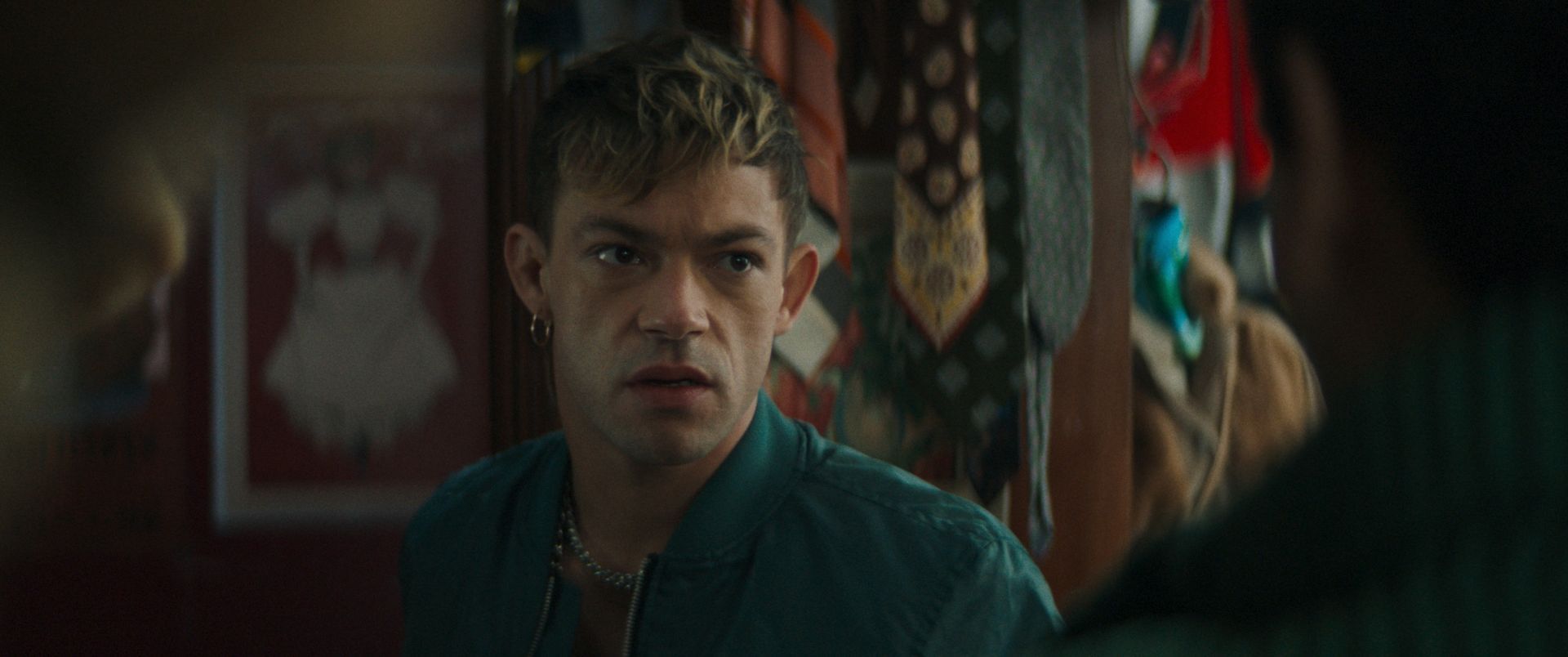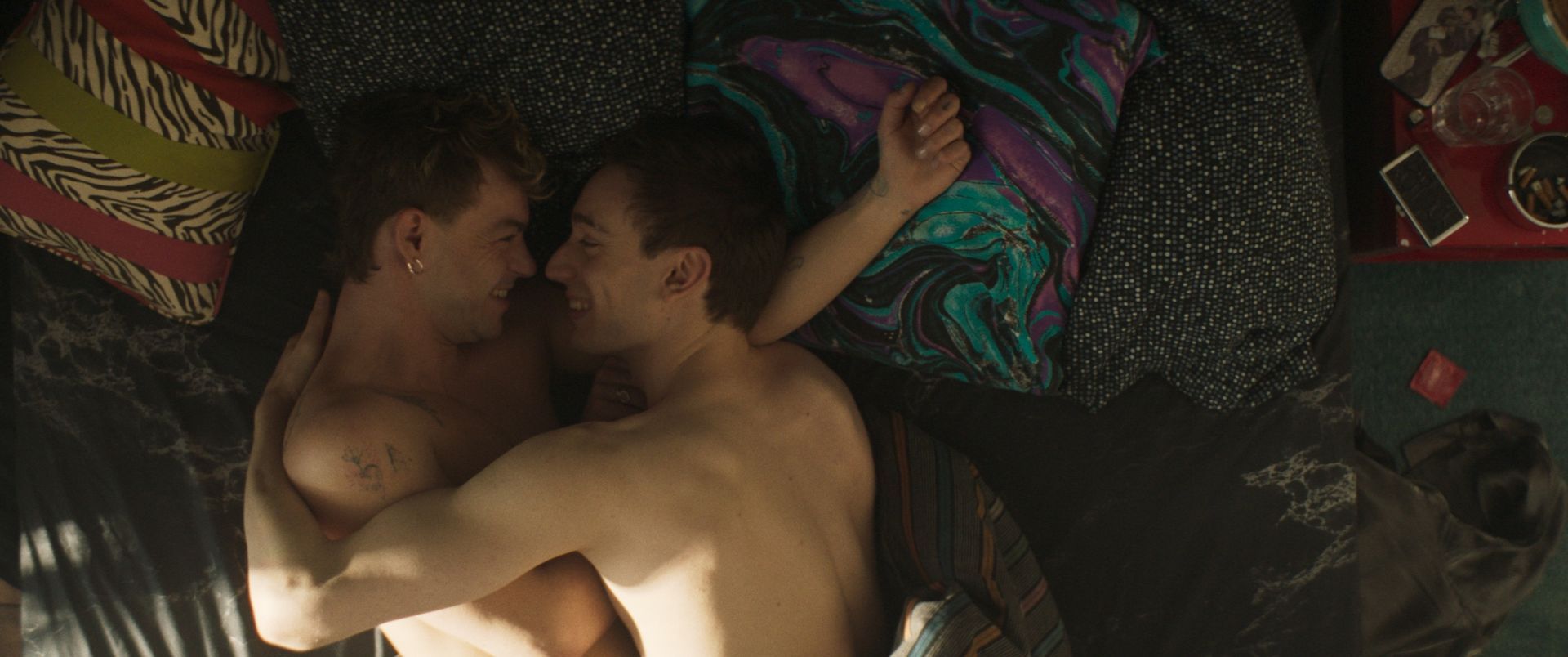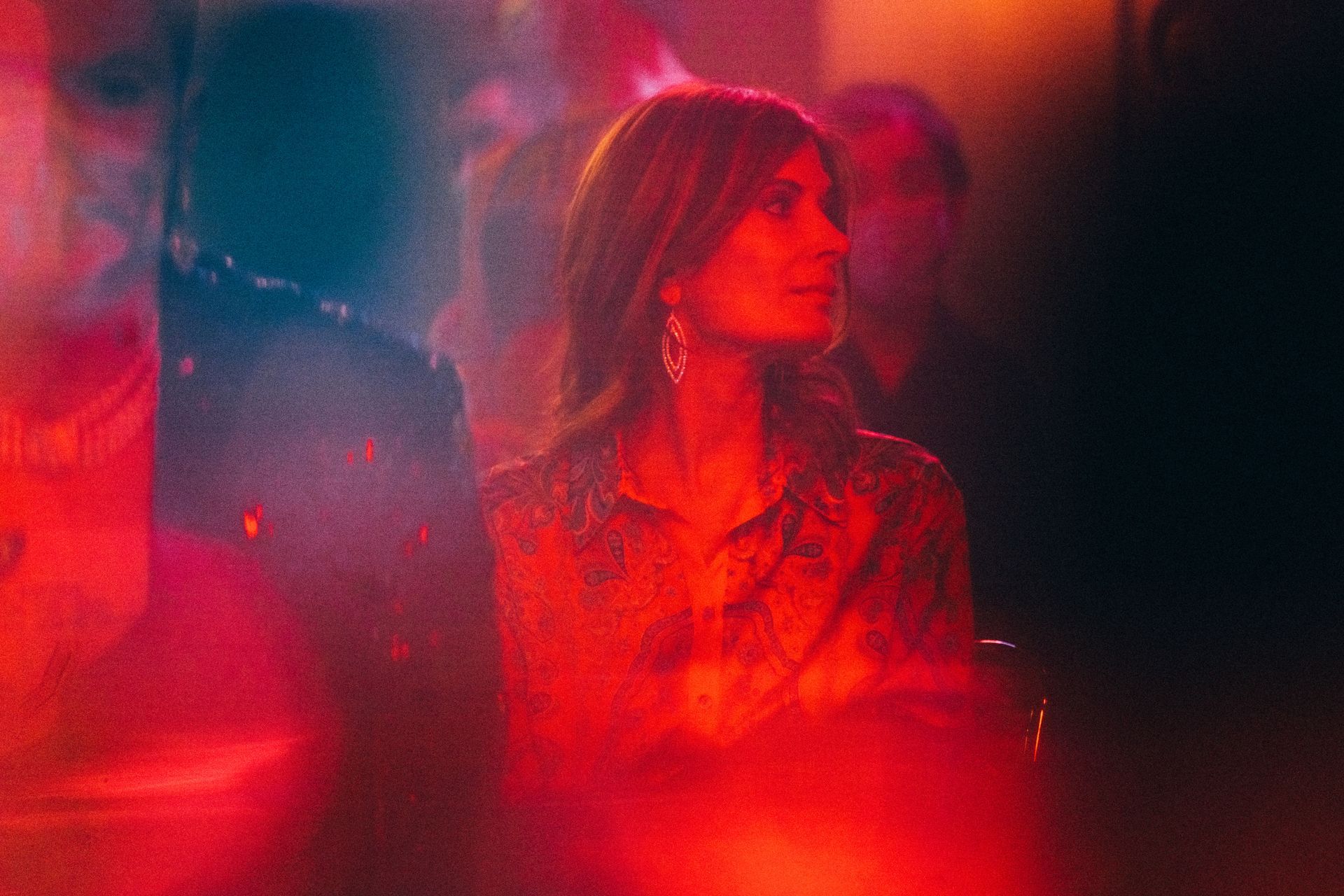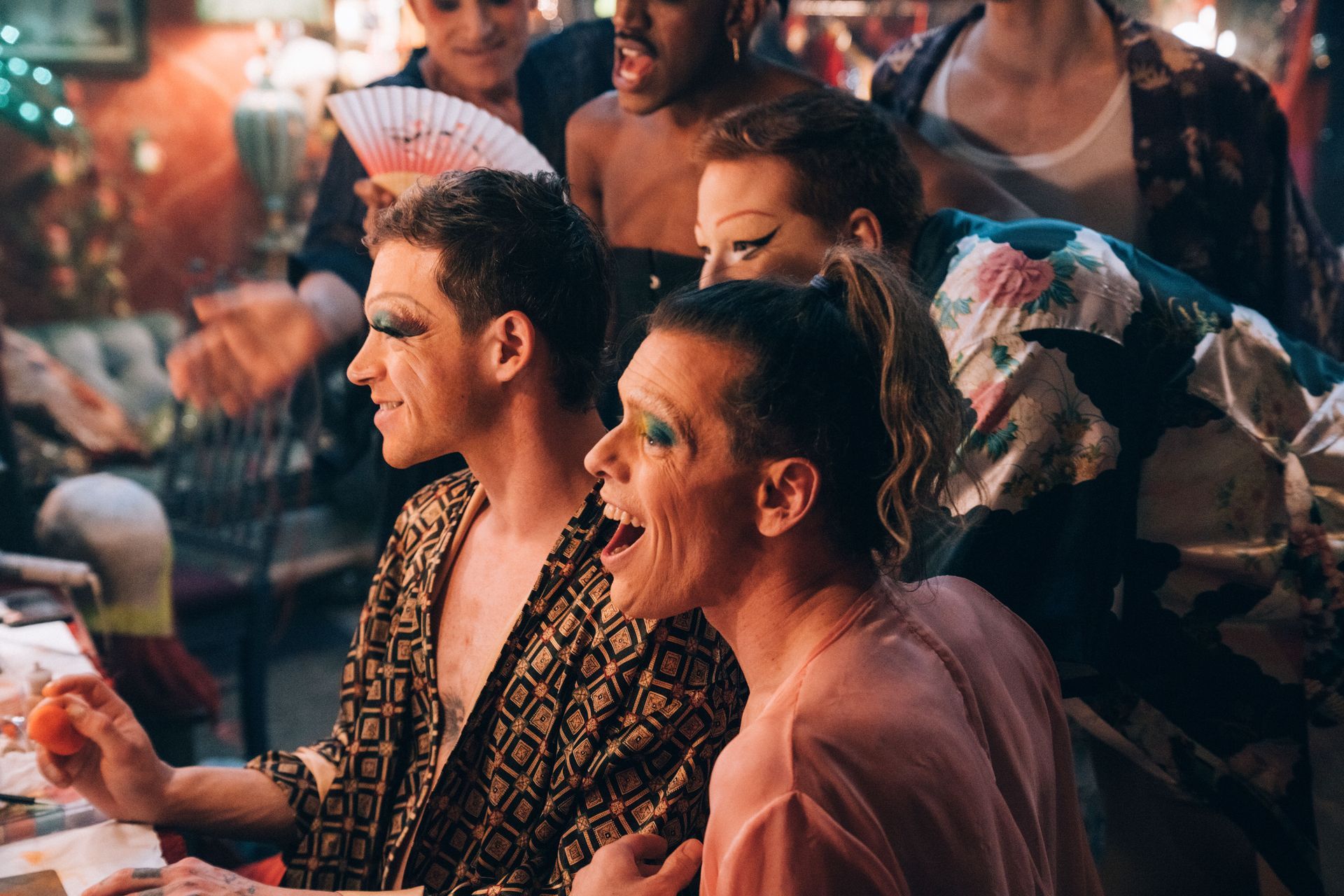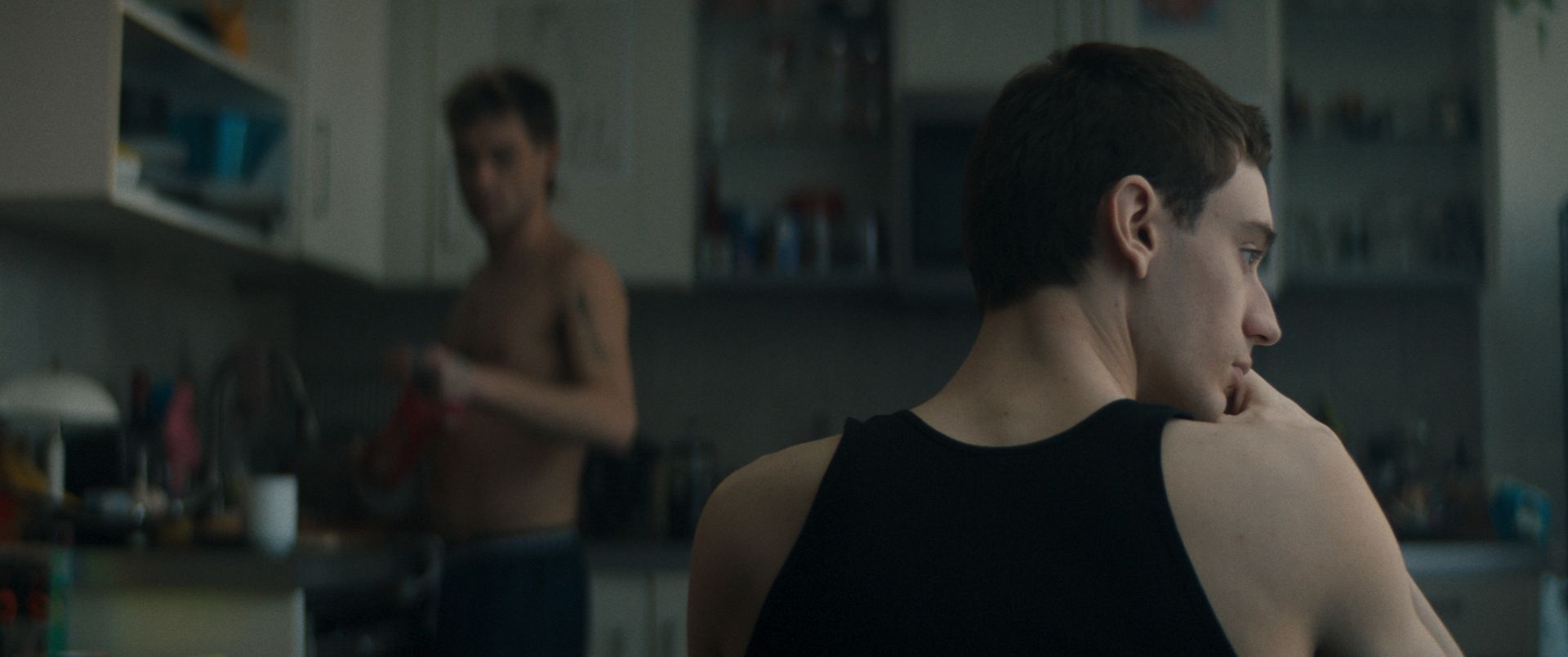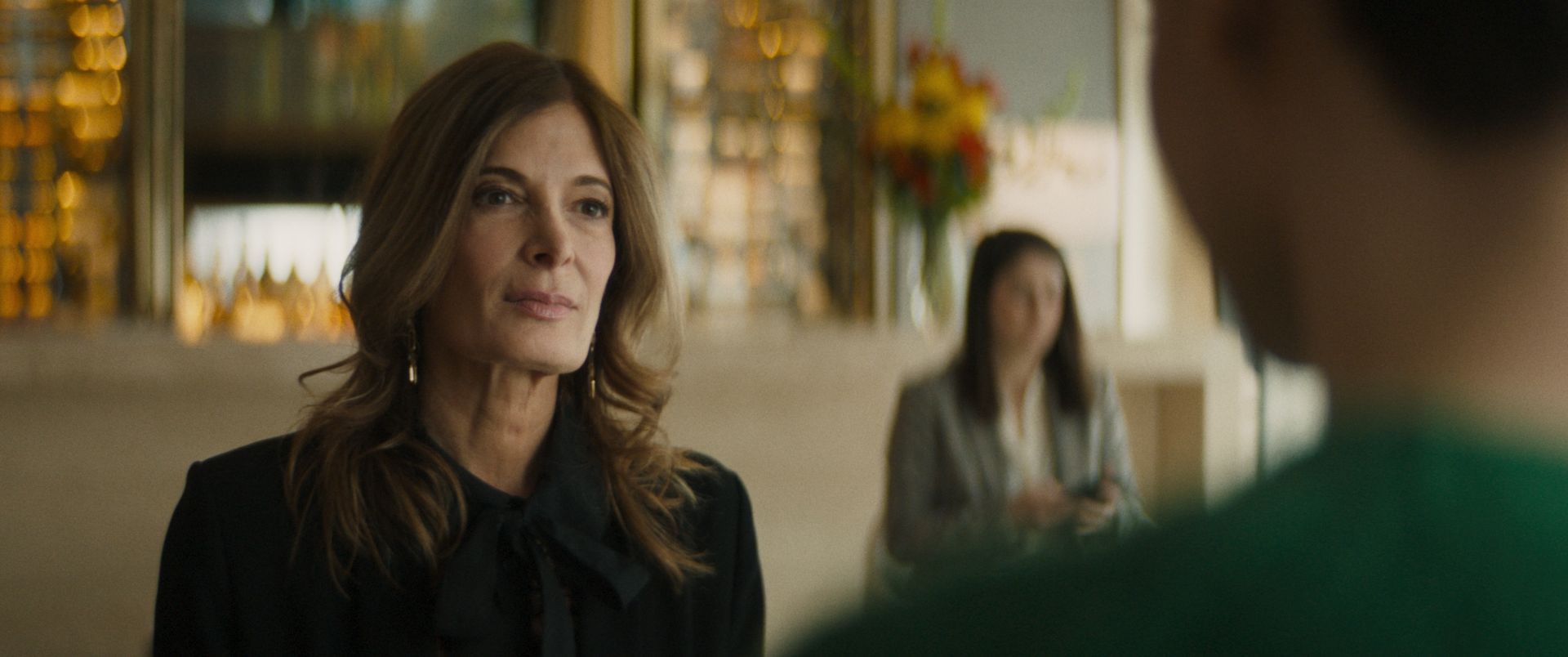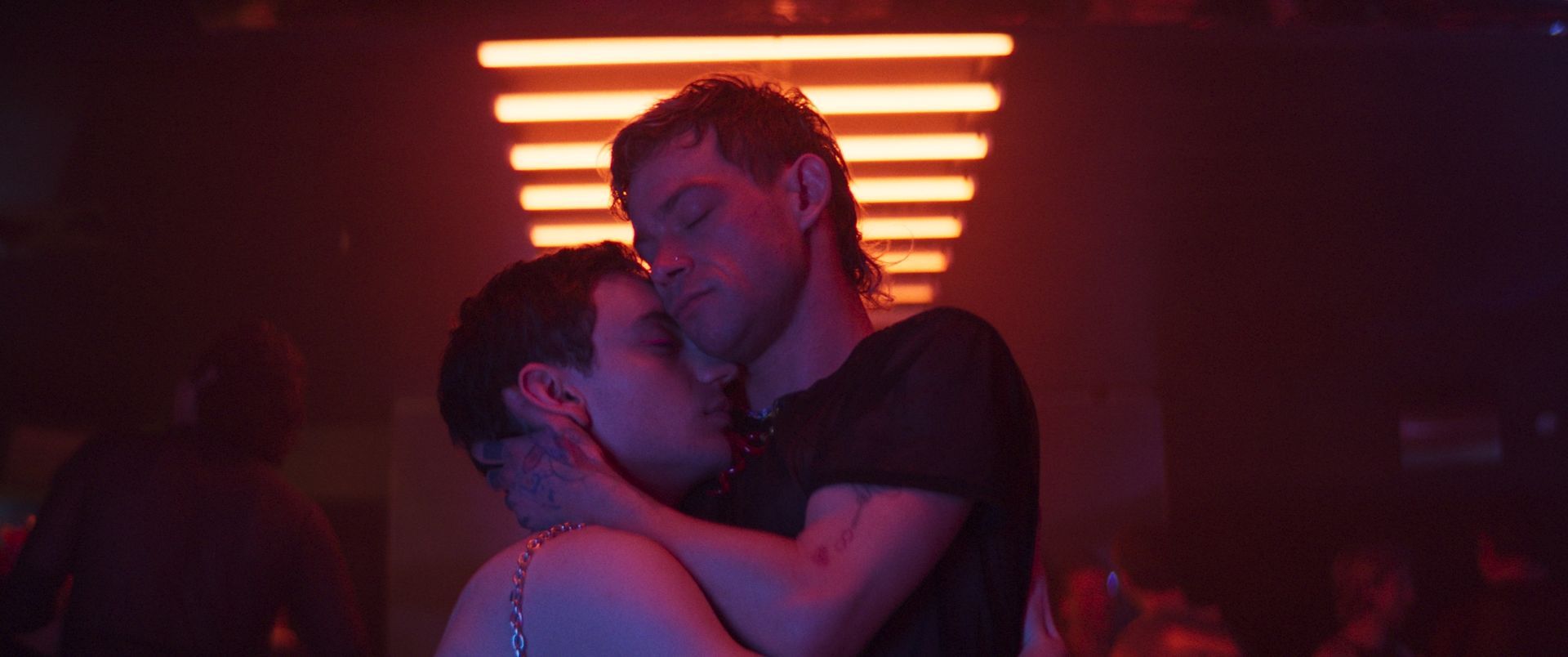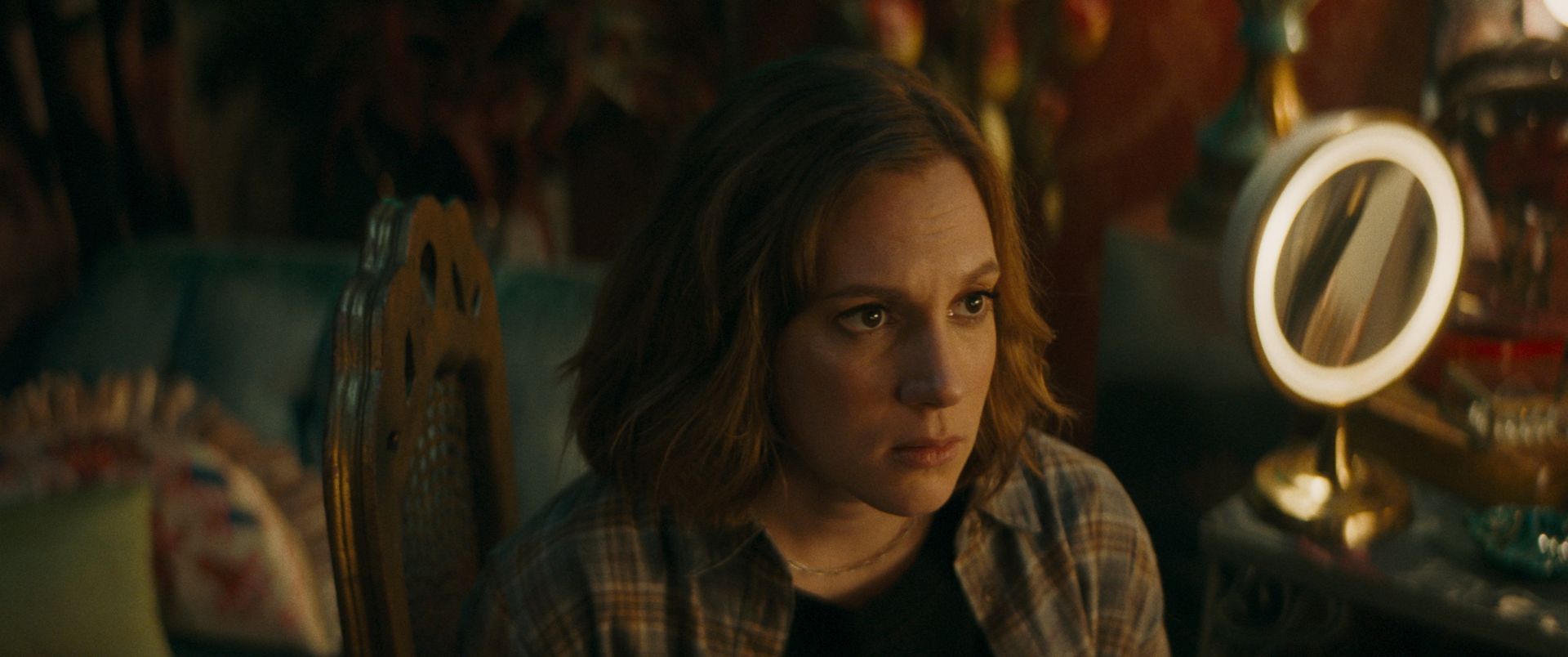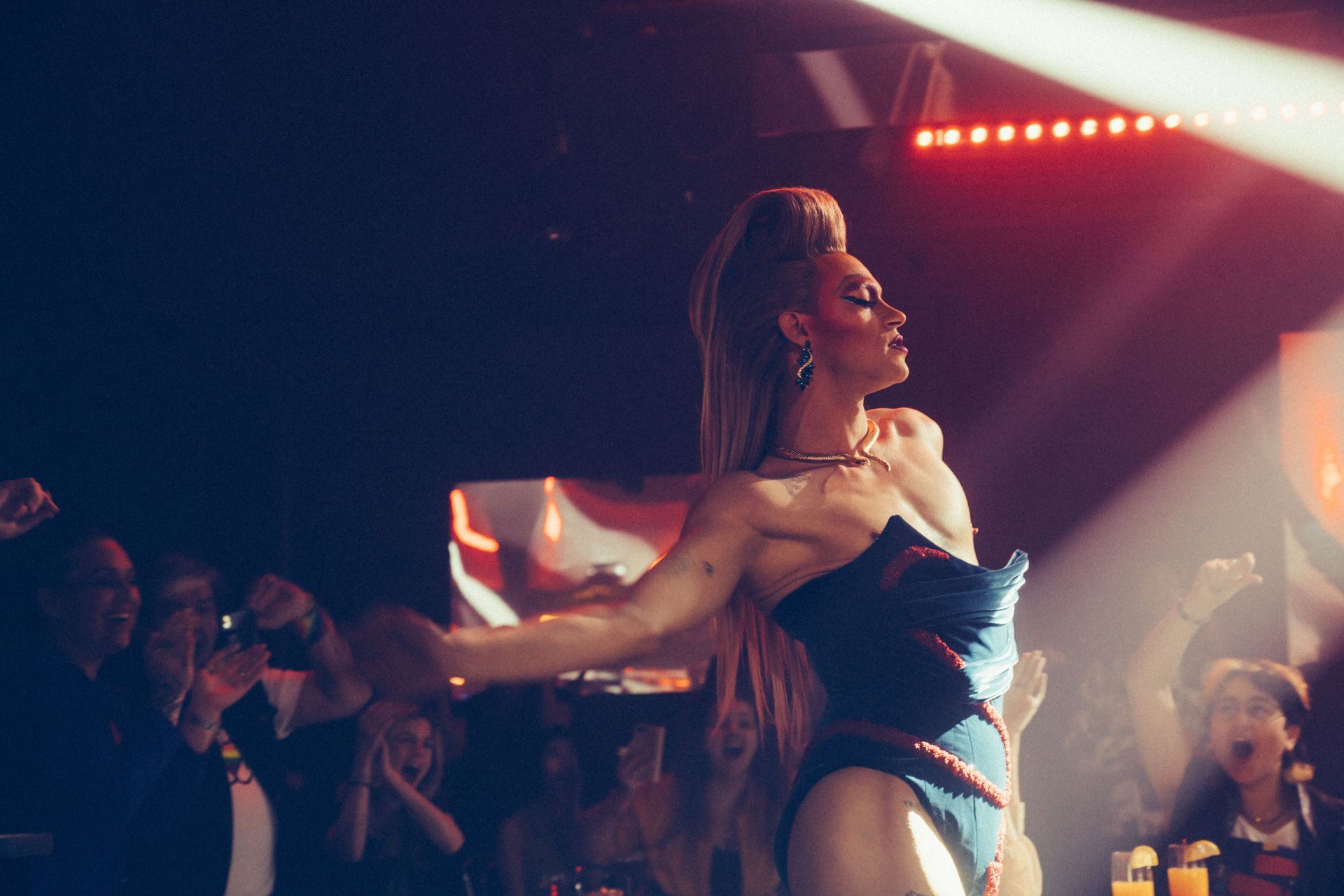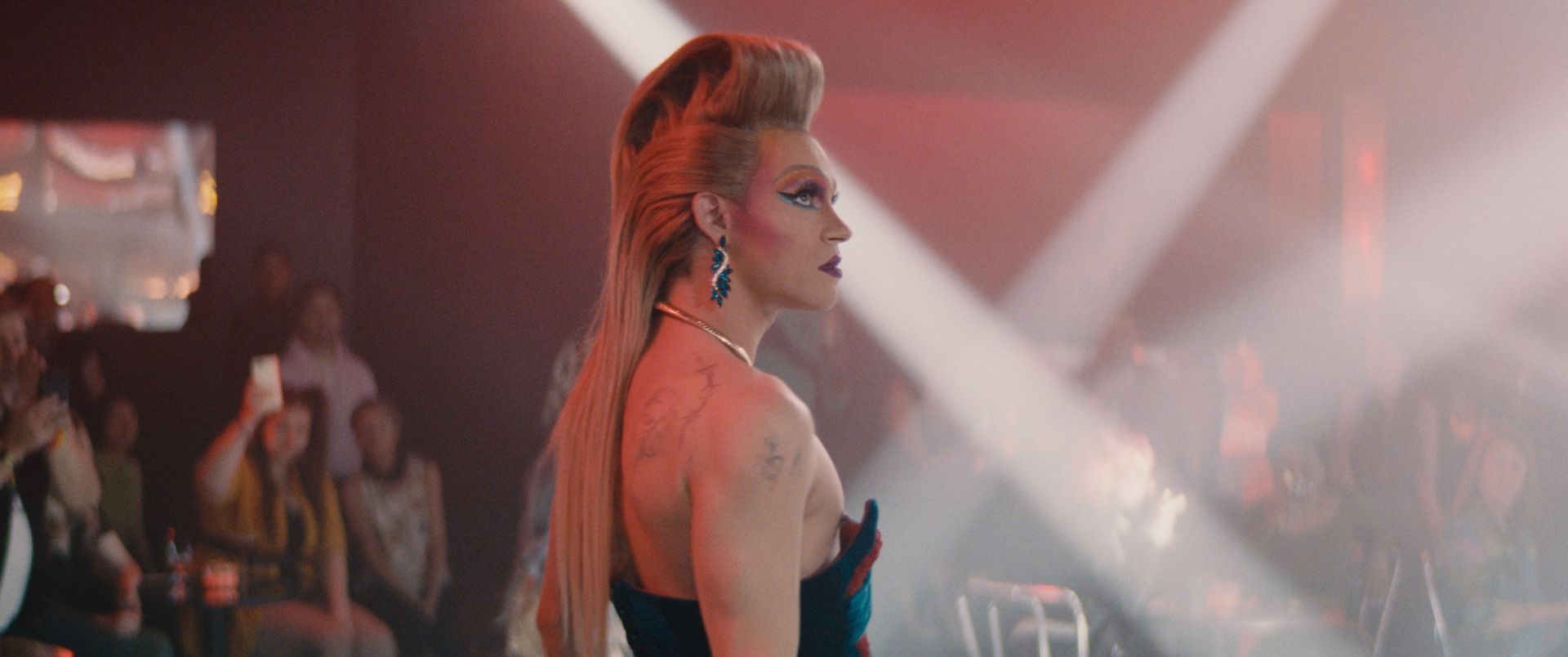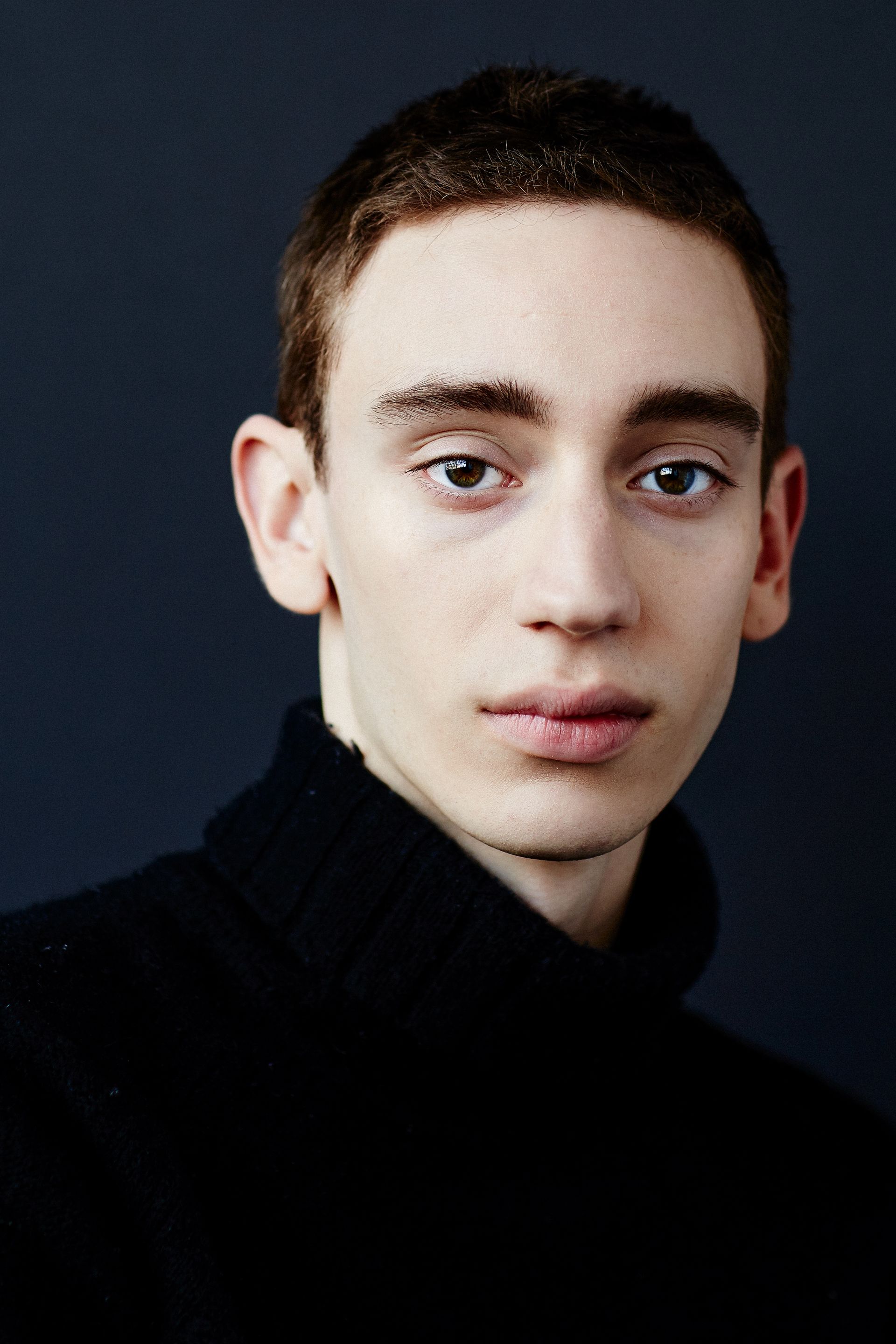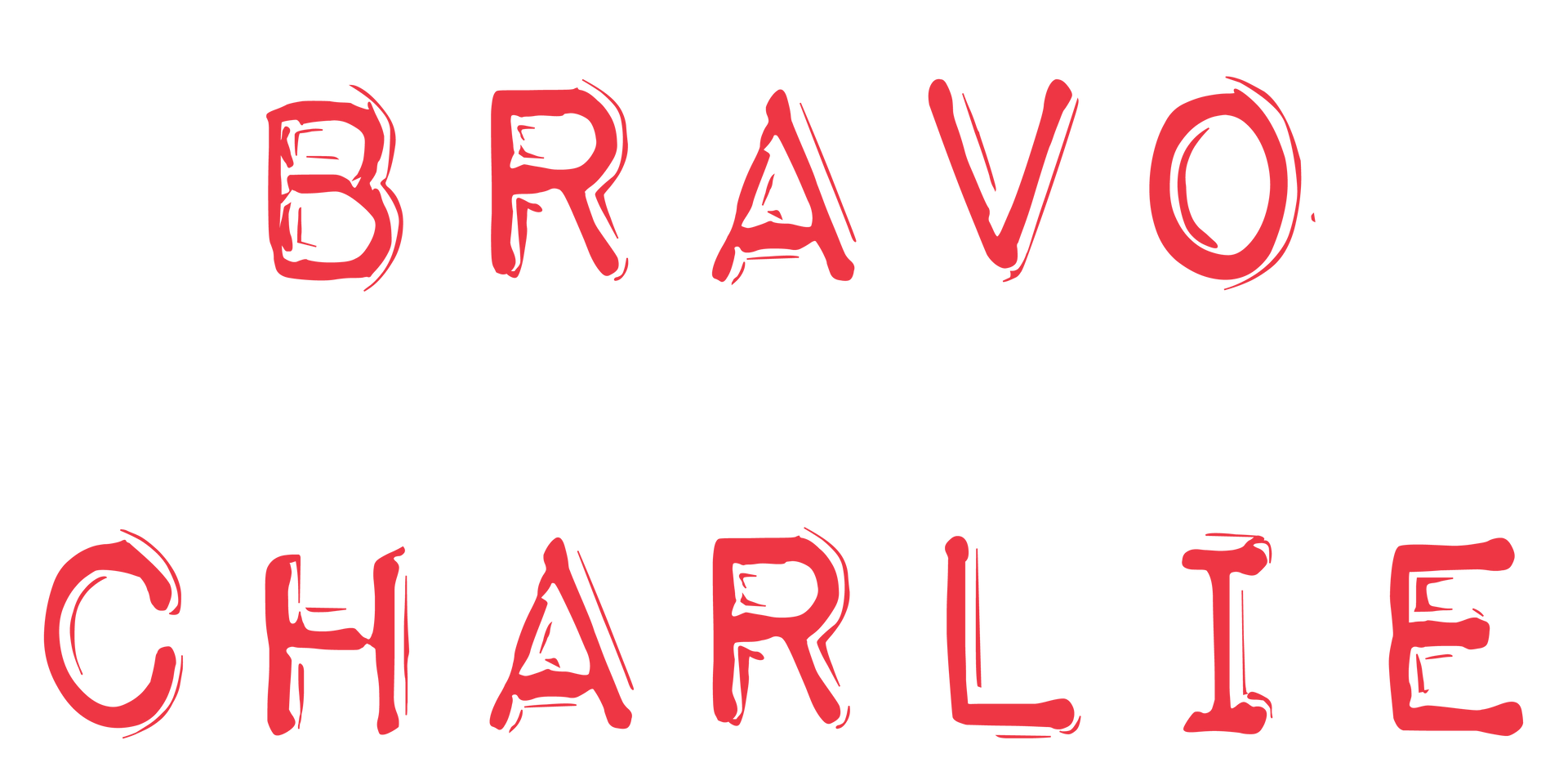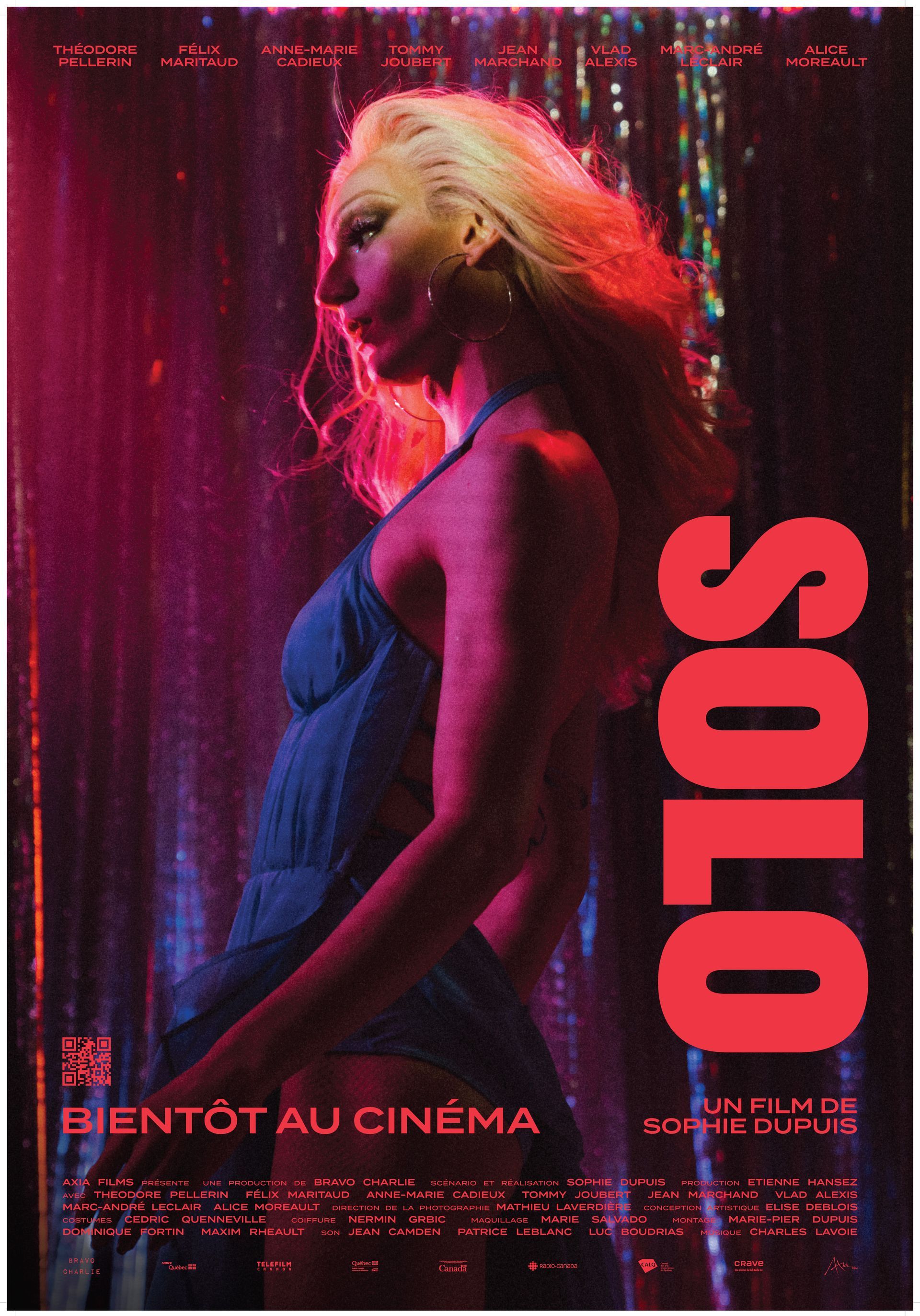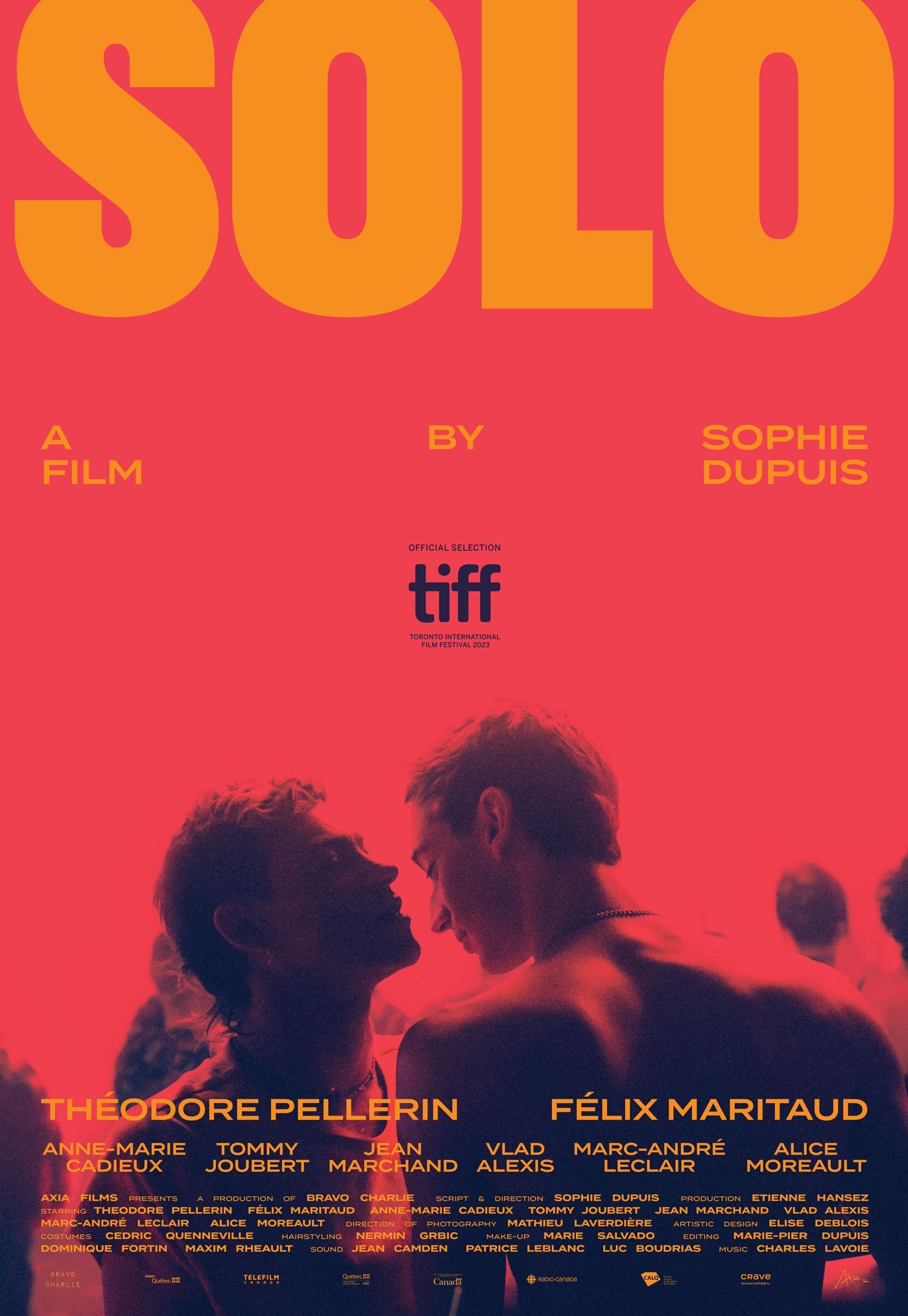SYNOPSIS
SOLO tells the story of Simon, a rising star on the Montreal drag scene. It's love at first sight when he meets Olivier, the new recruit to the bar-show where he performs. While Simon thinks he's in for an electrifying love affair, a toxic and destructive dynamic develops between them. At the same time, Simon's mother Claire, a famous opera singer, returns home to work after a 15-year absence. Fascinated by this woman, whom he hardly knows but idealizes, Simon persists in trying to create a bond with her. Weakened by the failure of these two impossible loves, Simon has no choice but to realize that he deserves better.
SOLO paints the portrait of a passionate man undermined by a tempestuous romance that comes undone and a frail maternal bond that he romanticizes. How did you come up with the idea of exploring these toxic relationships?
First and foremost, because I’m fascinated by human psychology. I wanted to portray a toxic relationship and explore its inner workings, root causes, repercussions, and the reasons why a person might allow themself to be mistreated by someone they love. I wanted to do this with compassion and find ways to understand everyone, without pointing any fingers at so-called ‘villains’ or ‘victims.’ As a screenwriter, it was a wonderful challenge to extend so much love to all parties involved in these types of relationships.
I was fortunate enough to be accompanied by a psychologist who served as a script consultant. I had so many questions and didn’t want my life experience or judgment to interfere too much with my depiction of reality. For instance, I wanted to know how Simon’s character could come to the realization that he was trapped in two toxic relationships. She couldn’t give me a definitive answer that applied to every story, but she did share something that motivated me to bring this film to fruition. She told me that many people become aware they’re in a toxic relationship when they watch a film that depicts the same type of dynamic they’re in. According to her, cinema can serve as the catalyst to their recovery. With that, the idea of making a worthwhile contribution with SOLO became a driving force for the actors and me.
You’ve been contemplating putting drag culture in the spotlight for a long time. You’ve spoken about your ‘intense admiration’ and even ‘obsession’ for this milieu. Why is that?
I’ve always been interested in the LGBTQIA2+ community and its struggles, especially the freedom to express one’s gender identity however one may choose. I’ve always found particularly heartbreaking people’s intolerance towards something so personal. We’re only talking about freedom when it comes to LGBTQIA2+ issues and gender identity.
As for drag artists, some would argue they are spokespersons – role models for queer people who feel different and misunderstood. That’s an incredible form of civic engagement that profoundly moves me. The art of drag also thumbs its nose at the oppressor. Performers reclaim and celebrate aspects of their identity sometimes used to denigrate them (their femininity, for instance). The mere act of taking to the stage in drag can become a manifesto or a heartfelt appeal for freedom. So I wanted to make a film in which drag was a pretext, something my characters were passionate about, without having everything revolve around it.
SOLO pays particular attention to costumes, hair, and make-up. Early in pre-production, you selected the music for your characters’ drag numbers, thus setting in motion the creation of their accompanying looks and choreographies. What aesthetic considerations did you have in mind?
SOLO is my love letter to drag culture, and I wanted it to be fittingly glorious and sumptuous. That said, creating dazzling costumes, elaborate choreographies and over thirty sculpted, voluminous wigs takes months of work. Our film’s craftspeople had to take inspiration from the chosen songs – namely “I’m Every Woman” by Chaka Khan and “Voulez-vous” by ABBA – and everyone had to work in close collaboration. It was the most preparation I’d ever done on a feature! Surprisingly, planning for a film about drag artists turned out to be much more complex than a film about miners.
We also cast the film quite early on because I wanted my actors to take dance lessons and create their drag persona. I gladly offered some pointers, but I didn’t want to impose a style on them. Choreographer Gerard X Reyes, one of the founders of Montreal’s kiki ballroom scene, also helped my actors discover their inner drag artist.
Your approach to casting was deliberately inclusive, both for actors and extras. Could you elaborate on that?
My casting director and I put out a call to talent agencies, specifying that we were interested in meeting their LGBTQIA2+ members. Some immediately understood our approach, while others were a bit more reluctant. I’m proud to say that we stuck to our guns. We met with everyone who expressed an interest, and decided from the get-go that we would change the gender of certain characters if needed. What matters to me in auditions isn’t any set-in-stone idea I might have about a character, but rather each actor’s perception and interpretation of them. Some people got emotional when sharing that it was the first audition where they didn’t have to conceal their sexual orientation. That was not only deeply moving but it also only made me want to double-down on our inclusive approach.
Your filming locations included Complexe Sky, a legendary bar in Montreal’s Gay Village that was completely transformed for SOLO. Can you tell us more about the choice of this location?
A set of circumstances conspired to bring us to shoot at this iconic Gay Village venue. Above all, we wanted to create an environment on set where trust, safety, and a celebration of queerness prevailed. It was particularly moving for our cast and crew to feel as though they could fully assert their queer identity and dress as they wished to. As our shoot progressed, the queer people behind the camera began feeling safe enough to express their gender identity. With each passing day, people felt a little freer. It’s wonderful that we were able to collectively create this safe space.
During rehearsals, you always encourage actors to further flesh out the characters you initially imagined on paper. Why is that?
Actors have always been at the heart of my practice, and it would be such a waste to overlook their valuable contributions. I eagerly await the moment in rehearsals when an actor surpasses me in their grasp and mastery of the character. From then on, when they tell me: “I want to convey something in the scene in this or that way,” we talk about it, and I often decide to follow their lead. On SOLO, Théodore created a more provocative, less gentle Simon than what I’d originally imagined, and he was right. I’m concerned with the truth and authenticity of the world we create together.
This marks your third collaboration in as many features with actor Théodore Pellerin. Would it be fair to describe him as your “muse”?
Absolutely. Working with Théodore is quite exceptional. His outlook on characters has always moved me – his love for them. Often, actors working with Théodore will tell me that they were treated to a master class in acting while rehearsing with him. He brings enthusiasm and a kind of obsession to his projects. When he commits to something, it becomes his life for a while. I find that beautiful. We’ve come a long way in our collaboration: I know that when he points something out to me, he’s right. When I tell him to trust me, he abandons himself. I’d describe us as co-creators more than an actor/director duo. It’s hard to explain, but you rarely come across actors like Théodore over the course of your career.
How did you come to cast Félix Maritaud for the part of Olivier?
I really like the fact that he’s not just a superbly talented actor, but also a queer activist who always finds the right words and strikes the right tone when tackling LGBTQIA2+ topics in the media. I really like the tough yet tender energy he exudes, which is both self-assured and unashamed. He’s fearless and that leaves me in awe. Plus, he’s wildly charismatic. So I was confident he could embody a magnetic Olivier that would sweep the character of Simon off his feet.
Since Family First, your films have delivered extreme emotional experiences and your characters have left an indelible mark. How do you explain this approach?
With my body of work, I want viewers to connect emotionally with realities they are not familiar with. I believe the best way to achieve this is to subject characters we’ve grown fond of – but who are very different from us – to extreme situations. If viewers react with empathy to what a character is going through, especially one who doesn’t resemble them, that’s when we can truly connect with the human being, open our hearts, and change our outlook on things. We can no longer look at a community that has been marginalized by society in the same way, because we’ve experienced something really powerful with them. And that’s when we put an end to attitudes of the “why would I pay social services for so-and-so” and “why would I support the rights of such-and-such” variety. And that, ultimately, is why I firmly believe in the power of cinema to change lives.
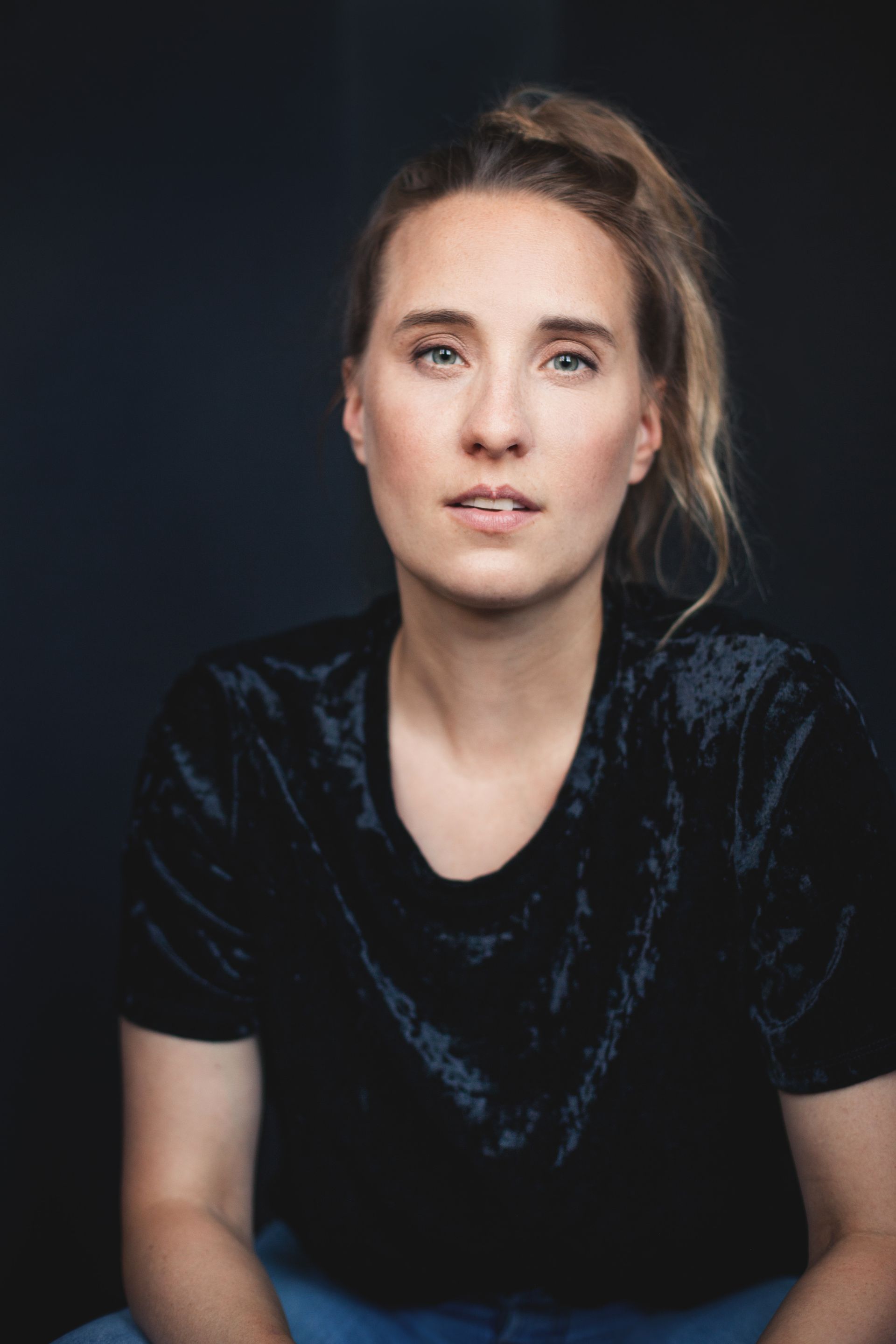
SOPHIE DUPUIS • director
Sophie Dupuis, one of the 10 Canadians to watch according to Variety 2022, has a very specific goal: "I want to make films that let you experience strong emotions". So far, with Chien de garde (2017, Canada's pick in the Oscar race for Best Foreign-Language Film), a drama revolving around two brothers who get mixed up in their uncle's cartel, and Souterrain (2019, Iris for Best Screenplay), a thriller set in a gold mine in northern Quebec, she's kept her promise. Already, you can recognize her signature energy in the script and editing that keeps you on the edge of your seat. The director and screenwriter know how to make herself at home with subjects far from her own, a talent underlined by the international press: "Sophie Dupuis treats her subject and her characters with impressive accuracy" (Libération, France); "Dupuis understands perfectly the dynamics of relationships between men" (The Guardian, London). Sophie Dupuis develops deep bonds with her actors, who take part in numerous rehearsals prior to shooting. In working together, she believes there must be equal openness, listening and abandonment. The results: exceptional performances and acting awards, notably for Théodore Pellerin, her favorite actor, whom she revealed and who is in all her films. In her third film, SOLO, Sophie Dupuis tells the story of an electrifying love affair between two drag queens, and Simon's attempt to reconnect with his mother, a famous opera singer who returns after a 15-year absence. She says proudly: her cast is the queerest ever assembled in a Canadian production. Her words to describe SOLO: festive, musical, intense, a whirlwind of emotions! A whirlwind of emotions that spares no character. It's a tumultuous story with a disco beat and a shower of glitter.
CASTING
THÉODORE PELLERIN
Since 2013 and his first contract in the daily series 30 vies, Théodore Pellerin has taken part in numerous film, TV and stage productions. His remarkable, sensitive performances have earned him numerous awards and honors. His career now spans Quebec and the rest of the world.
In the film world, he has played a variety of roles in short and feature films: Course Navette (by M. Aubert), Sigismond sans image (by A. Aurtenèche), which was presented at the 2016 Cannes Film Festival; Les Démons (Philippe Lepage), Juste la fin du monde (Xavier Dolan), Ailleurs (Samuel Matteau). In 2018, he won the Iris for Revelation of the Year for his role in Chien de Garde (Sophie Dupuis). That same year, his performance in Genèse (Philippe Lepage) earned him four acting awards, including the Bayard for Best Actor at the Festival international du film francophone de Namur. In 2021, his role in Souterrain (Julien) won him the Best Supporting Actor award at the Gala Québec Cinéma, as well as a special mention from the jury at the Festival de Namur. He collaborates again with Sophie Dupuis in the film Solo en 2023.
On television, he appeared in the Quebec series 19-2, La théorie du K.O., Med, a children's series broadcast on Vrak TV for five seasons, and Patrick Sénécal présente, for which he won several awards, including his second Gémeau acting award in 2021.
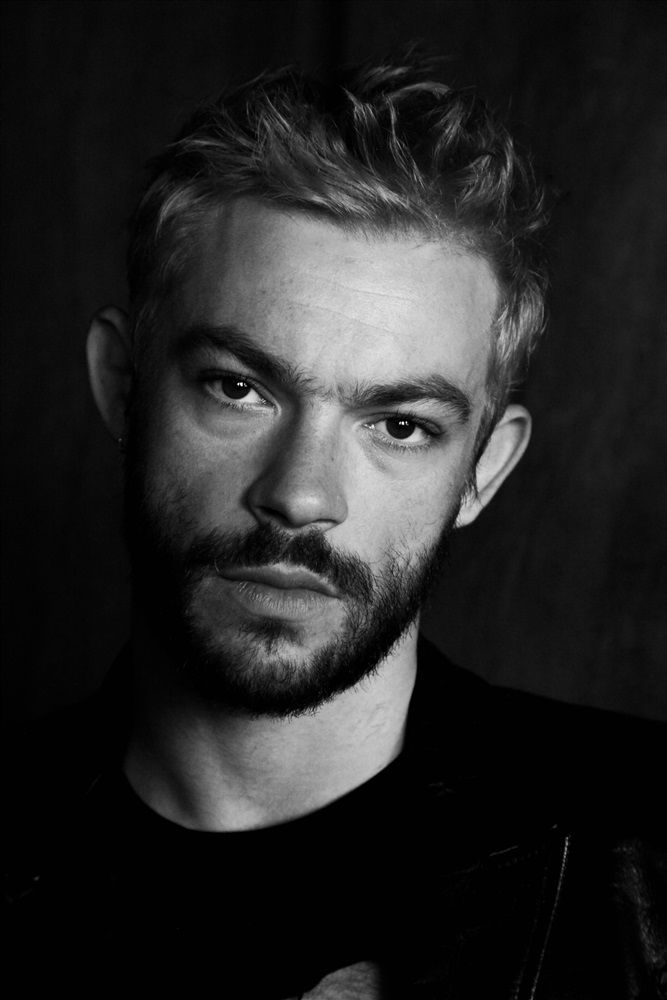
FÉLIX MARITAUD
Félix Maritaud trained at the École nationale supérieure d'art de Bourges. He came to prominence in 2017 for his role in Robin Campillo's 120 battements par minute. The film was presented at the Cannes Film Festival in 2017 and won the César for Best Film in 2018.
In 2017, he starred in Yann Gonzalez's Un couteau dans le cœur and Camille Vidal-Naquet's Sauvage, a performance that earned him the Prix Fondation Louis Roederer de la Révélation at Critics' Week 2018. Félix Maritaud has also appeared on the small screen in Christophe Charrier's Jonas.
In 2019, he stars in Gaspar Noé's Lux Æterna, presented at the Cannes Film Festival during a Séance de minuit, and Stéphane Streker's Enfant Terrible.
In 2020, he shot Tom by Fabienne Berthaud, You won't be alone by Goran Stolevski and in 2021 in Amore Mio by Guillaume Gouix. Solo by Sophie Dupuis will be released shortly, and he has just finished shooting Un monde violent by Maxime Caperan.
TOMMY JOUBERT
Since graduating from l’ École Nationale de Théâtre in 2015, Tommy has racked up appearances in popular series such as Les pêcheurs, Like-moi and Les Simone. More recently, his roles as Norbert in Contre-offre and Xavier in La tour have helped to make him a household name. His stage credits include La société des poètes disparus at Théâtre Denise Pelletier, Hamster at Théâtre La Licorne, the musical Footloose at Théâtre St-Denis in Montreal, and Rock of Ages at the Capitole de Québec. A versatile actor, he also excels at improvisation and is an extremely talented singer.
ALICE MOREAULT
Since graduating from l’ École Nationale de Théâtre in 2015, Alice Moreault has been seen on the small screen in Comment devenir une légende, Le jeu, Alertes, Le bonheur, Anna et Arnaud and Entre deux draps, among others. On the big screen, she played the role of Sandrine in Saint-Narcisse (directed by Bruce LaBruce), as well as participating in several short films. She will soon be seen in Sophie Dupuis' latest feature film, SOLO, as well as in Les jours heureux by Chloé Robichaud. Alice's theater credits include Les Plouffe at Théâtre du Trident, Les louves at Espace Go, La société des poètes disparus at Théâtre Denise-Pelletier, as well as Laurel et Hardy, Le désir, Psychédélique Marilou, Le garçon au visage disparu, Invisibles and Clara.
VLADIMIR ALEXIS
On the small screen, Vladimir's credits include Trauma, Mary Kills People, The Moodys and D. Cut. In 2022, he joined the cast of Aller Simple, directed by Yan Lanouette Turgeon, as well as the popular daily series District 31, in which he plays Jordan Beaucage.
On the big screen, Vladimir appeared in Bryan Singer's X-men Apocalypse, Roland Emmerich's Stonewall and Mariloup Wolfe's Arlette. In 2022, Vladimir lands a starring role in Sophie Dupuis' upcoming feature film SOLO, opening later this year.
On the stage, Vladimir joins the ranks of the musical Hairspray (directed by Denise Filiatrault) in 2013, before following Mélanie Demers' vision in Vers Solitaires in 2020. In 2021, he is part of the Cabaret Noir production, with which he will tour Quebec and Ontario until February 23. Last fall, at Prospéro, he played in Mélanie Demers' latest creation, Déclarations, much to our delight.
In 2022, Vlad was nominated in the Outstanding Performance - Gender Non-Conforming or Male category at the ACTRA awards in Toronto for his performance in the short film Lune (2021) by Aviva Armour-Ostroff and Arturo Pérez Torres.
JEAN MARCHAND
Jean Marchand graduated from the Conservatoire d'art dramatique de Montréal in 1975. In addition to being an outstanding bilingual actor and director, Jean Marchand pursues a career as a classical pianist, soloist, chamber musician and accompanist.
A fixture on television for many years, Jean first came to public attention in 1990 in Jean Beaudin's Les filles de Caleb. Two years later, he returned to the same director's set in Shehaweh. He has appeared in some of Quebec's biggest series, including Miséricorde, Les Orphelins de Duplessis, Félix Leclerc and Mauvais Karma, to name but a few. In recent years, Jean has made his mark in Unité 9, La Faille 2 and District 31. In 2022, Jean joined the cast of the Netflix series Graymail, starring Noah Centineo.
Jean's big-screen career is well established. He has appeared in a dozen feature films over the past forty years. Most recently, he won audiences over with his appearances in Martin Villeneuve's Mars et Avril, then Boris sans Béatrice and Denis Côté's Répertoire des villes des villes disparues. This year, his talent will be on full display in Sophie Dupuis' next film, Solo.
Finally, on the stage, Jean has performed on all the province's major stages over the years. He spoke the words of Nelligan, directed by Monique Leyrac at Place-des-Arts, of La Cantatrice Chauve, directed by Daniel Roussel at Rideau Vert, of Antigone, directed by Lorraine Pintal at Théâtre du Nouveau Monde, and of Amadeus, directed by Alexandre Marine at the Segal Theatre, to name but a few. More recently, Jean played in Brigitte Haentjens' Richard III at the Théâtre du Nouveau Monde and in You will remember me at the Centaur. Last year, for the 2022-2023 theatre season, he was in the cast of the great play Le Roman de Monsieur Molière. The play was presented at the TNM, directed by Lorraine Pintal.
ANNE-MARIE CADIEUX
Anne-Marie Cadieux has been making a name for herself in Quebec and internationally for many years, thanks to an active career in theater, film and television.
On stage, she has worked with some of our greatest directors, including Robert Lepage, Brigitte Haentjens, Denis Marleau, Serge Denoncourt, Dominic Champagne, Lorraine Pintal and André Brassard, as well as playing some of the greatest roles in the classical and contemporary repertoires. Her career is littered with demanding plays and daring roles. These include Strindberg's Mademoiselle Julie, Sophocles' Electra, Merteuil in Heiner Müller's Quartett and Caliban in Shakespeare's The Tempest. At the Théâtre du Nouveau Monde, her interpretations of Elizabeth 1st in Marie Stuart by Dacia Maraini, Marguerite Gautier in La dame aux camélias by Alexandre Dumas, Annette Reille in Le dieu du carnage by Yasmina Reza, Sophie in Ha ha!... by Réjean Ducharme and Sarah Bernhardt in La Divine Illusion by Michel-Marc Bouchard, each earned her the Gascon-Roux prize for best female performer of the year. She also played Molly Bloom in the play of the same name directed by Brigitte Haentjens, followed by Lumières, lumières, lumières at Espace Go and Elmire in Molière's Le tartuffe at the TNM. More recently, she shone in Petra von Kant's Les larmes amères at Théâtre Prospero, Soifs Matériaux with compagnie UBU, and Embrasse directed by Eda Holmes. In 2022, she will also be in Michel Tremblay's new creation Cher Tchekov at the TNM.
On the silver screen, she made a remarkable debut in Robert Lepage's Le confessionnal, winning the Luce-Guilbault Award for revelation of the year and a Genie nomination. This was followed by performances in Robert Lepage's Nô (nominated for a Genie), Charles Binamé's Le coeur au poing (winner of a Jutra Award), Louis Bélanger's Le génie du crime and Curtis Wehrfritz's Four Days, Sébastien Rose's Comment ma mère accoucha de moi durant sa ménopause, François Bouvier's Maman Last Call (nominated for a Jutra Award) Robert Lepage's La face cachée de la lune and François Delisle's Le bonheur, c'est une chanson triste and Toi (nominated for a Genie Award). In recent years, she has appeared in Jacob Tierney's The Trotsky and Good Neighbours, Claude Miller's Voyez comme ils dansent, Tony Pemberton's Buddha's Little Finger, Pat Kiely's Three Night Stand and André Turpin's Endorphine. She also appeared in Xavier Dolan's Matthias et Maxime.
On the small screen, she made her mark with roles in the series Annie et ses hommes, Rumeurs, Miss Météo and Cover-Girl, for which she won a Gémeaux award in 2006, and TVA's Yamaska, for which she received an Artis award nomination in 2011. She has also appeared in Tactik, Les bobos, Web thérapie, Sur-vie and, more recently, Trop and Hubert et Fanny. Since 2019, she has been playing Mireille Turcotte, First Lady of Quebec, in La Maison Bleue.
A popular actress with audiences and critics alike, Anne-Marie is known for her boldness, versatility and intensity, moving brilliantly from drama to comedy. The prestigious honors she has received over the years testify to her talent and commitment to the Quebec artistic scene.
BRAVO CHARLIE • production company
Co-founded in 2014 by Etienne Hansez, Bravo Charlie has produced a dozen films of all genres and formats. Its first feature film CHIEN DE GARDE directed by Sophie Dupuis, made its mark on the cinematic landscape, including representing Canada in the race for the 2019 Oscar for Best Foreign Language Film.
Proud of the success of SOUTERRAIN (Sophie Dupuis), released in 2021, followed by its co-production PHI 1.618 (Théodore Ushev), in 2022, Bravo Charlie now presents SOLO, its third collaboration with Sophie Dupuis. This prolific year will also see the release of TU NE SAURAS JAMAIS, directed by Robin Aubert (Les affamés).
Always developing new projects, Bravo Charlie proudly pursues its mission of cultivating auteur cinema accessible to a wide audience.
CREATIVE TEAM
Director of photography
MATHIEU LAVERDIÈRE
Artistic design
ELISE DEBLOIS
Costumes
CEDRIC QUENNEVILLE
Hair
NERMIN GRBIC
Make-up
MARIE SALVADO
Editing
Sound
JEAN CAMDEN
PATRICE LEBLANC
LUC BOUDRIAS
Original score
CHARLES LAVOIE
MUSIC
"Voulez-vous"
Performed by ABBA
(Benny Andersson, Bjoern Ulvaeus)
Published by EMI Waterford Music inc,
Universal Union Songs Musikforlag AB,
Universal Music Publishing Canada I
Courtesy of Polar Music International AB
"Vilja's Song - The Merry Widow"
Performed by Gianna Corbisiero
Composed by Franz Lehar
"I'm Every Woman"
Performed by Chaka Khan
(Nickolas Ashford, Valerie Simpson)
Published by Nick O Val Music Co. inc.
Courtesy of Rhino Entertainment Co.
"Work It"
Performed by Marie Davidson (Soulwax Remix)
(Marie Davidson, Pierre Guerineau)
Published by Just Isn't Music Limited, Third Side Music inc.
Courtesy of Ninja Tune, under exclusive license to Make It Rain Records
"Snake"
Composed and performed by Charles Lavoie
with the participation of Claudia Bouvette
"Runaway"
Performed by CRi (Christophe Dubé)
Published by Involved Publishing
Courtesy of Anjunadeep
"Hot Stuff"
Performed by Donna Summer
(Peter Bellotte, Harold Faltermeyer, Keith Forsey)
Published by Intersong USA inc.
Courtesy of The Island Def Jam Music Group
"L'amour le jour"
Performed by Le Couleur
(Steeven Chouinard, Dominique Éthier, Laurence Giroux-Do,
Patrick Gosselin, Marc-André Morin)
Courtesy of Lisbon Lux Records
"Fais-le encore"
Performed by ROSE La MATRAk
(Steve Nadeau, Gabrielle Dupuis-Vaillancourt)
"Thank You"
Performed by Alma Faye Brooks
(Alma Faye Brooks, Michel Daigle, Dominique Sciscente)
Published by Keep On Music, Les éditions Lady Capella
Courtesy of Unidisc Music inc.
"L'amour est un oiseau rebelle (Habanera)"
Performed by Marie-Josée Lord, Metropolitan Orchestra & Giuseppe Pietraroia
(Georges Bizet)
Courtesy of Atma Classique
"Dis-moi, dis-moi"
Performed by Mitsou
(Richard Dubuc, Mitsou Gélinas, Jean-Pierre Isaac, Céline Labelle)
Published by Balooza Music Publishing, Les éditions Numuz
Courtesy of Unidisc Music inc.
"Musetta - La bohème"
Performed by Gianna Corbisiero
Composed by Giacomo Puccini
"The Frame"
Written, composed and performed by Dear Criminals
(Frannie Holder, Charles Lavoie, Vincent Legault)
"While We Wait"
Performed by Dominique Fils-Aimé
(Dominique Fils-Aimé, Jacques Roy)
Published by Ensoul Publishing, Southern Music Publishing Co. Canada Ltd.
Courtesy of Ensoul Records
"The Grave"
Performed by Black Tiger Sex Machine & Apashe
(Patrick Barry, Marc-André Chagnon, John Debuck, Julien Maranda)
Published by Disques Kannibalen
Courtesy of Kannibalen Records
"Amazing"
Performed by Hi Fashion
(Jennifer Demartino, Richard Gradone)
Published by R Gradone Music, Silvertooth
Courtesy of Hi Fashion
"Si. Mi chiamano Mimi"
Performed by Gianna Corbisiero
Composed by Giacomo Puccini
Courtesy of Extreme Music
"Groovejet (If This Ain't Love)"
Performed by Spiller feat. Sophie Ellis-Bextor
(Robert Davis, Sophie Ellis-Bextor, Vincent Montana, Cristiano Spiller, Ronald Walker)
Published by Anatom Music, Concord Songs Limited, Irving Music of Canada, Universal MCA Music Publishing, Universal Polygram International Publishing I, Lucky Three Music Publishing Co., Universal MCA Music Limited, Universal Music Publishing Limited
Courtesy of Defected Records Limited
"Disgrace"
Performed by Filippin & Runah
(Lorenzo Filippin, Tara May Mollan)
Published by Milleville Records
Courtesy of Radikal Records under exclusive license from Milleville Records
"Queen"
Performed by Sandy Duperval
(Michael Hadreas)
Published by Kobalt Music Copyrights Sarl, Kobalt Music Publishing Ltd. Canada
Arrangements by Gaëtan Gravel



